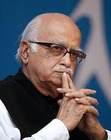L.K. Advani's Blog, page 4
November 22, 2013
OUTSTANDING PHOTOGRAPHS: A UNIQUE BOOK FROM SIPRA DAS
 I have in the past attended many book-release functions. But the one that I participated in on Monday this week (November 18, 2013) was really unforgettable. The function was held at the Rashtrapati Bhavan, in the presence of the President, but the book was not released by him. The formal release of the book, titled “The Light Within” was done by two sweet little girls by name Pragya and Prachi. The two are twin sisters; since birth both cannot see. The two are now studying in XII Standard. Sipra’s book carries an earlier picture of theirs with their father.
I have in the past attended many book-release functions. But the one that I participated in on Monday this week (November 18, 2013) was really unforgettable. The function was held at the Rashtrapati Bhavan, in the presence of the President, but the book was not released by him. The formal release of the book, titled “The Light Within” was done by two sweet little girls by name Pragya and Prachi. The two are twin sisters; since birth both cannot see. The two are now studying in XII Standard. Sipra’s book carries an earlier picture of theirs with their father.
Prachi and Pragya, when they were 6 years
old with their father, a Delhi Businessman
 The book, which I have described in the title as ‘unique’ is a compilation of photographs by a photojournalist, Sipra Das.
The book, which I have described in the title as ‘unique’ is a compilation of photographs by a photojournalist, Sipra Das.
I have been in politics for decades, and based in Delhi. And so I have known Sipra Das for years. No one can describe her better than Gulzar, himself a great artist, who has written the Foreword to the book. The very opening paragraphs give the readers a graphic idea of both the photographer as well as her photographs, which truly make the book unique. Gulzar writes:
Sipra Das had a heart in place of the lenses on her camera. Those who see and feel the faces with their fingers, have an inner lens to see with their hearts.
Sipra has the same.
Mr. Jawahar Kaul, visually handicapped is the principal of the “All India Confederation of the Blind”. He said: “You can see with your eyes, but cannot see with your heart, as we can.” But Sipra sees with both.
After going through the photographs of Sipra Das, the life seems so normal with the fisherman Misri Sahani, Safat Ali Hasan, Riyazuddin, the motorcycle mechanic, that I felt my own capabilities were so less, lacking, and handicapped.
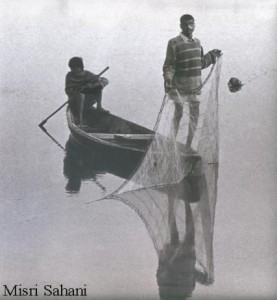 This book has been published by Niyogi Books. The invitation for the function indicates the venue, date and dignitaries who would attend, not only in conventional print, but also in Braille.
This book has been published by Niyogi Books. The invitation for the function indicates the venue, date and dignitaries who would attend, not only in conventional print, but also in Braille.
It was in 2005 that Sipra had first invited me to inaugurate an exhibition of her photographs in New Delhi. The theme was the same she has now considerably developed to publish this full-fledged 204-page book. I gather that she organized that earlier exhibition also at eight different cities of the country.
As the publishers of this book have aptly summed up its contents :
“The Light Within captures the extraordinary lives of the visually Impaired through images that stimulate genuine empathy and a certain degree of awe.
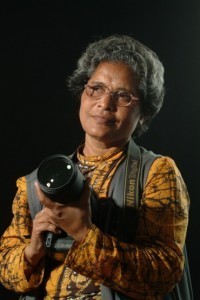 They enthrall you with their wit, their perspicacity, their ability to see beyond the obvious. In the Light Within, Sipra has sought to narrate tales of struggle and survival, of despair and hope, of resilience and triumphs.
They enthrall you with their wit, their perspicacity, their ability to see beyond the obvious. In the Light Within, Sipra has sought to narrate tales of struggle and survival, of despair and hope, of resilience and triumphs.
Each story in this book is filled with drama. The characters in the book open our eyes. They teach us to see life in a new light. They help us evolve as a human being. They bring us face to face with blinding flashes of truth that would have remained outside our ken had their amazing lives not touched us through this book. They inspire us.”
Beginning her career during the early 1980s, Sipra first worked with the Anandabazar Patrika group and then with the Aajkaal newspaper in Kolkata. She joined the Press Trust of India (PTI) in 1987. She developed the PTI photo service in Kolkata before moving to New Delhi to take charge of the news agency’s national photo coverage.
She later worked with the India Today magazine for more than two decades, covering major political news, the country’s senior politicians, and politically and historically important events.,”

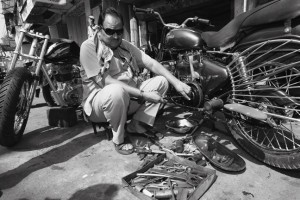
RESHMI SONAWANE RIYAZUDDIN

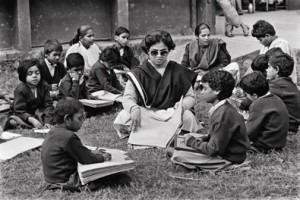
PREETI MONGA SANGEETA
The pictures given on pages 2-3 provide the readers of this blog with a sample of the extraordinary lives the sightless chosen by Sipra have lived.
SANGEETA, 38
School Teacher
Daughter of an iron trader in Muzaffarpur, Bihar, Sangeeta runs a residential school for the visually impaired, besides being the brain behind Shubham, an NGO that helps poor children from the villages in the vicinity. Being sightless, she found all her efforts to study in a school for normal children thwarted. But her academic record has been nothing short of spectacular. She went to a school for the visually impaired and passed with flying colours, ranking tenth on the merit list. She went on to acquire MPhil and PhD degrees. In 1986, she was among the 300 university toppers who were invited by the then Prime Minister Rajiv Gandhi for high tea. She was the only visually challenged person on that select list of invitees. The PM asked her what she wanted to do next. Her reply was prompt. She said she wanted to help the visually challenged lead normal lives the way she does. The rest, as they say, is history. Sangeeta has since gone from strength to strength in her mission
MISRI SAHANI, 30
Fisherman
Misri Sahani is a sightless fisherman in Buddhanagara village, Bihar. He never returns home empty-handed. The eldest of seven siblings, he lost his eyesight at the age of two. He was under treatment for two months, but the doctor passed away. Misri received no medical attention thereafter – his family and neighbours believed he was a victim of black magic. His luck took a positive turn when he began accompanying his fisherman-father to the Barigandak river. Misri swims and is a more than competent fisherman. He earns up to Rs.5000 a month when the going is good. The haul, he says, is the best in the months of September and October.
Misri also owns a general Provisions store, which he set up with the help of a small government loan. His father and mother run the shop when the young man is out fishing. He often spends the entire night in his boat.
RESHMI SONAWANE, 32
Beautician
Reshmi Sonawane isn’t your average beautician. Nor does she fit into the image of a visually challenged woman. The mother of a boy, she is genetically blind. But that hasn’t stopped her from running a beauty parlour from her well-appointed Mumbai home. She provides a range of services – from basic beauty treatment to hairdressing to aromatherapy. Reshmi’s condition was detected when she was a five-year-old student of Hillgreen school, Peddar Road. “I do not know the cause of my blindness,” she says. “It was during my 12th standard exams that the letters of the alphabet began to merge,” she recalls. A counselor helped her tide over the disability and she completed her education – Reshmi is a History Honours graduate – with the help of readers and writers. She then went on to acquire additional training in export-import management. Because of her pretty eyes, Reshmi often encounters boorish behaviour from bus conductors who refuse to accept that she is actually sightless. “I find it very humiliating,” she says. Her husband is a Tata Motors dealer. She married him against her family’s wishes. Her parents severed all ties with her. Today, the gutsy Reshmi has no reason to regret her choice.
RIYAZUDDIN, 55
Motorcycle mechanic
Riyazuddin is a motorcycle mechanic in Bhopal, Madhya Pradesh. His skills in his chosen field are legendary. Engineers and mechanics from around the country consult him when they need specialized help with repairs. One of ten siblings, Riyazuddin, also known as Munnabhai, lost his eyesight at 23.
In the early 1970s, he had been taken to a doctor with an insect bite on the eyelid. The doctor gave him a medicine that was past its expiry date. He lost vision in one eye. Six months later, the strain affected his other eye as well. His family was too poor to afford further treatment. In 1980, he went to a shop in Delhi to buy tyres. Hoping to take advantage of his sightlessness, the shopkeeper gave him a used tyre. Riyazuddin felt it with his hands and instantly realised that it was defective. He returned the tyre and asked for another. The shopkeeper gave him three old tyres one by one. Each time, Riyazuddin called his bluff. Eventually, the shopkeeper realised the futility of his ploy.
The fifth tyre that he handed over to Riyazuddin was spanking new. As the latter turned to leave, the sheepish shopkeeper apologized. “I’ve shortchanged many customers over the years, but you’ve opened my eyes. I will never cheat a customer ever again,” he said.
Riyazuddin is a finicky mechanic – he handpicks every part. His repairs come with a one year guarantee. The early days were tough, but thanks to the consistent quality of his service, his clientele expanded quickly. Today his eldest son, Faisal – Riyaz has nine children – has learnt the ropes from him.
Engineers from Enfield Chennai often come to Bhopal to seek his assistance. Even other mechanics, when they cannot repair a motorcycle, turn to him for help. He hears the sound of a motorcycle on the mobile phone and can tell what is wrong with the engine. It is not without reason that his customers swear by Riyazuddin.
PREETI MONGA, 49
Public Relations Executive
Punjab-born Preeti Monga is an exceptionally driven woman. Sightless since the age of six, she is a public relations executive with an eye hospital in Delhi. “I follow my heart. Nothing can prevent me from achieving what I want to. It might take time, but I don’t give up,” she says. Her life is a living testimony to that spirit. She was a student of Loreto Convent, Delhi Cantonment, until Standard VIII. Expelled because of her condition, she had to sit at home for a while. She then enrolled in an open school, but that didn’t help matters either. She felt frustrated and unhappy. Her marriage led to more problems. Her jobless husband, who fathered two children, was abusive and physically violent. Back then Preeti was an aerobics instructor for the blind and earned enough to sustain herself and her children. She divorced her husband. Preeti’s second husband is a colleague ten years younger. “When I proposed, he took two days to decide,” she recalls. They’ve been married for over a decade now. Today a proud owner of a flat in an east Delhi locality, she designed the interiors all by herself. Preeti loves to be in control.
TAILPIECE
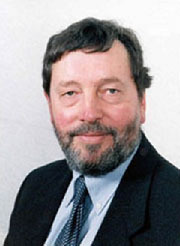 Going through the wonderful pictures and amazing stories in Sipra’s book, I am reminded of an extremely astounding such case that I have encountered in my own political career.
Going through the wonderful pictures and amazing stories in Sipra’s book, I am reminded of an extremely astounding such case that I have encountered in my own political career.
When in 1998-2004, I was Home Minister in Shri A.B. Vajpayee’s Cabinet, my counterpart in U.K. Prime Minister Tony Blair’s Cabinet was, at the outset, Jack Straw (1998-2001) and later, David Blunkett (2001-2004).
Of these two, Blunkett’s case is not just astounding, for many it would seem incredible. David Blunkett, born June 6, 1947, has been a Labour Party MP for Sheffield Brightside from 1987 to 2010. Blind since birth, and coming from a poor family in one of Sheffield’s most deprived districts, he rose first to become Education and Employment Secretary, then Home Secretary, and later Work and Pensions Secretary in Tony Blair’s Government.
It was in 2002 perhaps that Blunkett visited India. He came a couple of days after Republic Day Parade. He attended Beating the Retreat function at Vijay Chowk. I had arranged to ensure that the entire programme and the music of the various bands were provided to him in Braille.
The longish write-up about David Blunkett in the Wikipedia gives the names of his guide dogs – Ruby, Teddy, Offa, Lucy, Sadie and Cosby – and says that they have become familiar characters in the House of Commons, usually sleeping at his feet on the floor of the chamber, inspiring occasional witty comments from Blunkett and his fellow MPs from both sides of the House. In one memorable incident, Lucy (a black Labrador curly coat retriever cross) vomited during a speech by a Conservative member. On occasions when Blunkett was guided by (then PM) Tony Blair the wry comment was made, “Who is guiding whom?”
L.K. Advani
New Delhi
22 Nov, 2013

November 19, 2013
हैदराबाद एक्शन को लेकर नेहरु-पटेल मतभेदों पर डा. के.एम. मुंशी का प्रत्यक्षदर्शी साक्ष्य
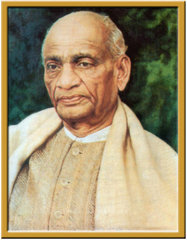 गत् वर्ष सरदार पटेल की जयन्ती की पूर्व संध्या यानी 30 अक्टूबर, 2012 को नई दिल्ली से प्रकाशित अंग्रेजी दैनिक पायनियर ने एक समाचार प्रकाशित किया जिसके अनुसार हैदराबाद में सेना भेजने के सरदार पटेल के फैसले के विरोध के फलस्वरुप प्रधानमंत्री नेहरु द्वारा उन पर की गई तीखी टिप्पणियों के चलते सरदार पटेल एक महत्वपूर्ण मंत्रिमंडलीय बैठक से उठकर चले गए।
गत् वर्ष सरदार पटेल की जयन्ती की पूर्व संध्या यानी 30 अक्टूबर, 2012 को नई दिल्ली से प्रकाशित अंग्रेजी दैनिक पायनियर ने एक समाचार प्रकाशित किया जिसके अनुसार हैदराबाद में सेना भेजने के सरदार पटेल के फैसले के विरोध के फलस्वरुप प्रधानमंत्री नेहरु द्वारा उन पर की गई तीखी टिप्पणियों के चलते सरदार पटेल एक महत्वपूर्ण मंत्रिमंडलीय बैठक से उठकर चले गए।
तब से, विशेषकर मेरे द्वारा अपने एक ब्लॉग में पायनियर के इस समाचार का उपयोग करने के बाद से बड़ा विवाद खड़ा हो गया है। निस्संदेह यह समाचार एक आइएस अधिकारी श्री एम.के.के. नायर जिनकी मृत्यु 1987 में हुई, द्वारा लिखित एक मलयालम पुस्तक पर आधारित है। जैसाकि मैंने अपने एक ब्लॉग में उल्लेख किया था कि पुस्तक का अनुवाद अंग्रेजी में हो रहा है, परन्तु अभी तक यह प्रकाशित नहीं हुई है।
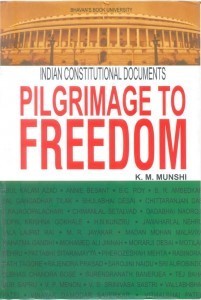 जो लोग इस मलयालम पुस्तक के कथ्य पर संदेह उठा रहे हैं और मानते हैं कि हैदराबाद की कार्रवाई पर तथाकथित मतभेद लेखक के पूर्वाग्रह आधारित कल्पना की उपज है। वे इस तथ्य पर जोर दे रहे हैं कि एमकेके नायर की पहुंच भारत सरकार की एक कमेटी की बैठक में होने वाली कार्रवाई तक नहीं हो सकती।
जो लोग इस मलयालम पुस्तक के कथ्य पर संदेह उठा रहे हैं और मानते हैं कि हैदराबाद की कार्रवाई पर तथाकथित मतभेद लेखक के पूर्वाग्रह आधारित कल्पना की उपज है। वे इस तथ्य पर जोर दे रहे हैं कि एमकेके नायर की पहुंच भारत सरकार की एक कमेटी की बैठक में होने वाली कार्रवाई तक नहीं हो सकती।
मेरे सामने 1967 में प्रकाशित डा. के.एम. मुंशी द्वारा लिखित सुव्यवस्थित दस्तावेजों पर आधारित 621 पृष्ठों की वाली पुस्तक ‘पिलग्रिमेज टू फ्रीडम‘ है। हैदराबाद में पुलिस कार्रवाई से पूर्व श्री मुंशी भारत के एजेंट जनरल थे। इस पुस्तक में हैदराबाद में सैन्य कार्रवाई से सम्बन्धित अध्याय को मैं विस्तृत रुप से उदृत कर रहा हूं। यह अध्याय, घटनाक्रम में भाग लेने वाले की ओर से ठोस प्रमाण देता है तथा मलयालम पुस्तक में वर्णित घटनाओं की सत्यता को भी प्रमाणित करता है।
अध्याय इस विस्तृत पैराग्राफ से शुरु होता है :
” भारतीय रजवाड़ों में हैदराबाद निजाम सर्वाधिक महत्वाकांक्षी था जिसने 12 जून , 1947 को घोषित कर दिया कि ” निकट भविष्य में सर्वोच्च ताकत के जाने का अर्थ होगा कि मैं एक स्वतंत्र सम्प्रभु दर्जे को फिर से पाने हेतु मेरा सक्षम होना। ” उसने बेरार , जो कभी उनके राज्य का हिस्सा था , को ‘ वापस लेने ‘ की मांग भी की और अपने राज्य के लिए समुद्र तक पहुंच बनाने के लिए , गोवा के बंदरगाह , लेने के लिए पुर्तगाल से बातचीत शुरु की।
निजाम ने अपने दिल में ब्रिटिश राष्ट्रमंडल का ‘तीसरा स्वतंत्र उपनिवेश‘ बनने का सपना संजो लिया। समझा जाता है क्राउन रिप्रिजेन्टटिव के सलाहकार सर कोनार्ड कॉफील्ड इसके प्रायोजक थे। यह सम्भव है कि उसने स्वयं ही यह विचार पहले पहल निजाम को सुझाया हो।
लम्बी वार्ताओं के बाद हैदराबाद और भारत के बीच 29 नवम्बर 1947 को एक वर्ष के स्टैन्ड्रास्टिल समझौते पर हस्ताक्षर हुए। उस अवसर पर सरदार ने संविधान सभा में अपने वक्तव्य में यह आशा प्रकट की कि इस अवधि में हैदराबाद के स्थायी रुप से विलीनीकरण का मार्ग प्रशस्त होगा।
सरदार ने मुझे (डा. के.एम. मुंशी) हैदराबाद में भारत संघ के एजेंट-जनरल बन कर जाने को कहा क्योंकि स्टैन्ड्रास्टिल समझौते के तहत दोनों पक्षों द्वारा ऐसी नियुक्ति करनी थी। जब मैंने गांधी जी से परामर्श किया तो उन्होंने इसको अपनी स्वीकृति दी ; अत: मैंने इसे स्वीकार कर लिया परन्तु बदले में कुछ भी लेने से इंकार किया।”
अध्याय में आगे लिखा है:
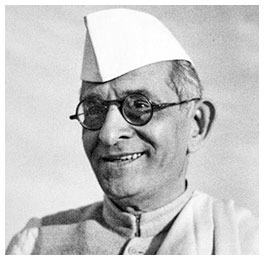 दिल्ली में बैठे कुछ लोगों द्वारा हैदराबाद समस्या हेतु समानांतर नीतियों के चलते हैदराबाद में मेरी (डा. के.एम. मुंशी की) स्थिति काफी असहज थी क्योंकि सरदार और वी.पी. मेनन मेरे माध्यम से राज्य का विलय उन्हीं शर्तों पर कराने का प्रयास कर रहे थे जैसाकि अन्य राज्यों का किया गया था। गर्वनर जनरल लार्ड माऊंटबेंटन निजाम के प्रधानमंत्री लाइक अली से बातचीत कर रहे थे
, जिसे सर वाल्टर माक्टॉन का समर्थन प्राप्त था और हैदराबाद को पर्याप्त स्वायत्तता प्रदान करने हेतु तैयार थे। यदि निजाम संघ में आने हेतु एक दस्तावेज पर हस्ताक्षर कर दे।
दिल्ली में बैठे कुछ लोगों द्वारा हैदराबाद समस्या हेतु समानांतर नीतियों के चलते हैदराबाद में मेरी (डा. के.एम. मुंशी की) स्थिति काफी असहज थी क्योंकि सरदार और वी.पी. मेनन मेरे माध्यम से राज्य का विलय उन्हीं शर्तों पर कराने का प्रयास कर रहे थे जैसाकि अन्य राज्यों का किया गया था। गर्वनर जनरल लार्ड माऊंटबेंटन निजाम के प्रधानमंत्री लाइक अली से बातचीत कर रहे थे
, जिसे सर वाल्टर माक्टॉन का समर्थन प्राप्त था और हैदराबाद को पर्याप्त स्वायत्तता प्रदान करने हेतु तैयार थे। यदि निजाम संघ में आने हेतु एक दस्तावेज पर हस्ताक्षर कर दे।
सरदार द्वारा अपनाई गई नीति के नेहरु विरोधी थे। एक अवसर पर , सरदार को सुझाया गया कि हैदराबाद में मेरे स्थान पर किसी और को भेजा जाए। सरदार ने इस पर ध्यान नहीं दिया। अनेक अवसरों पर मुझे तब हताशा हुई जब मेरे प्रधानमंत्री को मेरे पर विश्वास नहीं था, जबकि प्रत्येक समय मैंने उन्हें इत्तेहाद द्वारा ढहाए जा रहे अत्याचारों पर निष्पक्ष पुष्ट प्रमाण भी दिए। यदि सरदार का मुझ पर विश्वास नहीं होता तो मैं यह काम कब का छोड़ चुका होता।
निजाम और उसके सलाहकारों की हठधर्मिता के चलते हैदराबाद की स्थिति अनवरत रुप से टकराव की तरफ बढ़ रही थी , ऐसे में सरदार ने निजाम की सरकार को यह संदेश भिजवाना उचित समझा कि भारत सरकार की सहन शक्ति तेजी से समाप्त होती जा रही है। तद्नुसार इस आशय का एक संदेश स्टेट्स मिनिस्ट्री की ओर से वी.पी. मेनन द्वारा भेजा गया।
जब यह जवाहरलाल नेहरु को पता चला तो वह बहुत नाराज हुए। जिस दिन हमारी सेना हैदराबाद को मार्च करने वाली थी , उससे एक दिन पूर्व उन्होंने मंत्रिमण्डल की रक्षा समिति की बैठक बुलाई। इसमें तीनों सेनाध्यक्षों को नहीं बुलाया गया। यह बैठक प्रधानमंत्री के कक्ष में हुई और जवाहरलाल नेहरु, सरदार, मौलाना आजाद, तत्कालीन रक्षा और वित्त मंत्री, स्टेट सेक्रेटरी वी.पी. मेनन और रक्षा सचिव एच.एम. पटेल इसमें मौजूद थे।
विचार-विमर्श मुश्किल से शुरु हुआ ही था कि जवाहरलाल नेहरु क्रोध में उबलते हुए आए और हैदराबाद के सम्बन्ध में सरदार की कार्रवाई और नीति पर उनको फटकारा। उन्होंने अपना गुस्सा वी.पी. मेनन के विरुध्द भी प्रकट किया। उन्होंने अपना गुस्सा इस टिप्पणी के साथ समाप्त किया कि भविष्य में , हैदराबाद से सम्बधित सभी मामलों में वह स्वयं उपस्थित रहेंगे। उनके हमले का आवेग, और समय ने सभी मौजूदा लोगों को सकते में डाल दिया। इस दौरान सरदार बगैर एक शब्द बोले बैठे रहे। तब वह उठे और वी.पी. मेनन के साथ बैठक से बाहर चले गए। बैठक बगैर कुछ काम किए स्थगित हो गई।
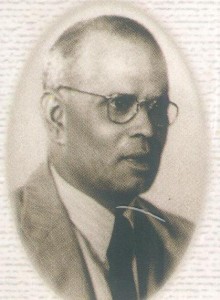 वी.पी. मेनन ने जवाहरलाल नेहरु से अपना विरोध दर्ज कराया कि यदि वे इस सम्बन्ध में ऐसी सोच रखते हैं तो स्टेट्स मिनिस्ट्री में मेरे (मेनन) बने रहने का कोई अर्थ नहीं है।
वी.पी. मेनन ने जवाहरलाल नेहरु से अपना विरोध दर्ज कराया कि यदि वे इस सम्बन्ध में ऐसी सोच रखते हैं तो स्टेट्स मिनिस्ट्री में मेरे (मेनन) बने रहने का कोई अर्थ नहीं है।
तब तक प्रधानमंत्री को महसूस हो चुका था कि उन्होंने कुछ ज्यादा ही कर दिया है तथा उन्होंने मेनन से माफी मांगी। उन्होंने सरदार के हाथों से हैदराबाद का विभाग छीन लेने की अपनी धमकी पर कभी अमल नहीं किया , और उधर सरदार पुलिस कार्रवाई के सम्बन्ध में अपने कार्यक्रम पर टस से मस नहीं हुए। उसके बाद दोनों में फिर कभी हैदराबाद के विषय पर विचार-विमर्श नहीं हुआ।
श्री वी.पी. मेनन और एच.एम. पटेल पूववर्ती घटना के की सच्चाई का अंदाजा लगा चुके थे।
पुलिस कार्रवाई शुरु होने के निर्धारित समय से थोड़ा पहले जब ब्रिटिश सेना प्रमुख ने कार्रवाई को टालना चाहा तो सरदार निर्धारित समय-सीमा पर डटे रहे और हमारी सेनाओं ने हैदराबाद में प्रवेश किया।
तेजी से कार्रवाई हुई। जैसे ही सेना सामने आई तो निजाम की तिनके भरी सत्ता ढह गई।
वी.पी. मेनन की पुस्तक ”दि इंटीग्रेशन ऑफ स्टेट्स” के अनुसार कासिम रिज़वी के एक भाषण में कहा गया था कि यदि भारत देश, हैदराबाद आता है तो उसे डेढ़ करोड़ हिन्दुओं की हड्डियों और राख के सिवाय कुछ और नहीं मिलेगा।
13 सितम्बर को सेना का ‘ ऑपरेशन पोलो ‘ शुरु हुआ। 17 सितम्बर को ऑपरेशन समाप्त हुआ और लाइक अली तथा उनके मंत्रिमंडल ने अपने त्यागपत्र दे दिए। उसी दिन निजाम ने अपनी सेना को भारतीय सेनाओं के सम्मुख हथियार डालने को कहा। समुचे देश में एक भी साम्प्रदायिक घटना नहीं घटी।
टेलपीस (पश्च्यलेख)
सैनिक कार्रवाई की सफलता के पश्चात् श्री के.एम. मुंशी ने एजेंट-जनरल के पद से त्यागपत्र दे दिया। स्टेट्स मिनिस्ट्री ने एक प्रेस नोट जारी कर मुक्त कंठ से प्रशंसा की कि कैसे मुंशीजी ने सौंपे गए काम को पूरी तन्मयता से किया।
मुंशी अपनी पुस्तक ”पिलग्रिमेज टू फ्रीडम” में लिखते हैं:
जब मैं दिल्ली लौटा तो सरदार ने आग्रह किया कि मुझे शिष्टाचार के नाते जवाहरलाल नेहरु से मिलना चाहिए। जब मैं संसद भवन स्थित प्रधानमंत्री कार्यालय गया तो वह अपने अन्त: कक्ष से बाहर आए और ठंडेपन से मुझसे मिले: ”हैलो मुंशी।” मैंने कहा ”मैं आप से मिलने आया था और अब मैं दिल्ली वापस आ गया हूं।‘ वह लगभग ऐसे मुड़े जैसे जाने वाले हों; तब वह पीछे मुड़े; हाथ मिलाया और चले गए।
मैंने सरदार को बताया कि जवाहरलाल नेहरु से भेंट की उनकी सलाह मानकर कैसे मुझे दु:ख हुआ। सरदार हंसे और कहा ”उनमें से कुछ तुमसे इसलिए खफा हैं कि तुमने इत्तेहाद की ताकत समाप्त करने में सहायता की। कुछ अन्य इसलिए गुस्सा हैं कि तुमने हैदराबाद से निजाम को सीधे हटाने नहीं दिया। कुछ अपना गुस्सा मुझ पर नहीं उतार सकते और इसलिए तुम्हें निशाना बना रहे हैं।”
लालकृष्ण आडवाणी
नई दिल्ली
19 नवम्बर, 2013

November 18, 2013
DR. K.M. MUNSHI’S FIRST HAND ACCOUNT OF NEHRU-PATEL DIFFERENCES OVER HYDERABAD ACTION
 On the eve of Sardar Patel’s birth anniversary last year, that is, on October 30, 2012, the Pioneer of New Delhi published a news report which said that following some sharp comments made by Prime Minister Nehru in which he disapproved Sardar Patel’s decision to send the Army into Hyderabad, Sardar Patel walked out of an important Cabinet Committee meeting.
On the eve of Sardar Patel’s birth anniversary last year, that is, on October 30, 2012, the Pioneer of New Delhi published a news report which said that following some sharp comments made by Prime Minister Nehru in which he disapproved Sardar Patel’s decision to send the Army into Hyderabad, Sardar Patel walked out of an important Cabinet Committee meeting.
A major controversy has erupted since then more particularly after I used the Pioneer news story in one of my blogs. The news story was no doubt based on a Malayalam book written by an IAS officer Shri M K K Nayar who passed away in 1987. As I mentioned in one of my later blogs, the book has now been translated into English, but it is still to be published.
 But those who are disputing the contents of the Malayalam book affirm that the so called differences over the Hyderabad action are the product of the author’s partisan imagination. They keep emphasising the fact that M K K Nayar could not have been privy to what happened at a Committee meeting of the Government of India.
But those who are disputing the contents of the Malayalam book affirm that the so called differences over the Hyderabad action are the product of the author’s partisan imagination. They keep emphasising the fact that M K K Nayar could not have been privy to what happened at a Committee meeting of the Government of India.
I have before me a 621-page extremely well documented book written by Dr., K.M. Munshi way back in 1967. It is titled “Pilgrimage to Freedom”. Munshi was India’s Agent General in Hyderabad before the Police Action. I am reproducing at some length excerpts from a chapter of this volume about the armed action in Hyderabad. This chapter provides clinching evidence from a participant in the crucial episode that the events mentioned in the Malayalam book are substantially correct.
The chapter opens with these tell-tale paragraphs :
The most ambitious of Indian Princes was the Nizam of Hyderabad who declared on June 12, 1947, that “the departure of the paramount power in the near future will mean that I shall become entitled to resume the status of an independent sovereign.” He also demanded the ‘retrocession’ of Berar, that had once formed part of his State, and started negotiations with Portugal to acquire the port of Goa, to secure an outlet for his State to the sea.
The Nizam had set his heart on becoming a “Third Dominion’ of the British Commonwealth. Sir Conrad Corfield, the Adviser to the Crown Representative, was reported to be its sponsor. It is possible that he himself had presented the idea to the Nizam in the first instance.
On November 29, 1947, after prolonged negotiations, a one-year Standstill Agreement was signed between Hyderabad and India. Sardar, in his statement to the Constituent Assembly on that occasion, expressed the hope that during that period the way would be paved for the permanent accession of Hyderabad.
Sardar asked me (Dr. K.M. Munshi) to go to Hyderabad as the Agent-General of the Union of India, as one had to be appointed by each party under the terms of the Standstill Agreement. When I consulted Gandhiji, he approved of the idea; so I accepted the commission, but refused to take any remuneration”.
The chapter goes on to add :
 “My (K.M. Munshi’s) position in Hyderabad was most embarrassing to me because of the parallel approaches to the Hyderabad problem by those who held power in New Delhi. Sardar and V.P. Menon were dealing with the situation through me to secure the accession of the State on the same terms as the accession of other States. Lord Mountbatten, the Governor-General, carried on negotiations with the Nizam’s Prime Minister, Laik Ali, supported by Sir Walter Monckton, and was prepared to concede substantial autonomy to Hyderabad if the Nizam only signed a document to come into the Union.
“My (K.M. Munshi’s) position in Hyderabad was most embarrassing to me because of the parallel approaches to the Hyderabad problem by those who held power in New Delhi. Sardar and V.P. Menon were dealing with the situation through me to secure the accession of the State on the same terms as the accession of other States. Lord Mountbatten, the Governor-General, carried on negotiations with the Nizam’s Prime Minister, Laik Ali, supported by Sir Walter Monckton, and was prepared to concede substantial autonomy to Hyderabad if the Nizam only signed a document to come into the Union.
Jawaharlal Nehru was averse to the line followed by Sardar. At one stage, it was suggested to Sardar that I should be replaced by someone else at Hyderabad. Sardar would not think of it. More than once I was disgusted at being distrusted by my Prime Minister, having had to provide independent corroboration every time I reported an atrocity on the part of the Ittehad. I would have thrown up the job but for Sardar’s confidence in me.
As the Hyderabad situation was inexorably moving towards a climax, due to the intransigence of the Nizam and his advisers, Sardar considered it advisable to let the Nizam’s Government know clearly that the patience of the Government of India was fast getting exhausted. Accordingly a communication to that effect was sent from the States Ministry by V.P. Menon.
When Jawaharlal Nehru came to hear of this, he was extremely upset. A day before our army was scheduled to march into Hyderabad he called a special meeting of the Defence Committee of the Cabinet, excluding the three Chiefs of Staff. The meeting, held in the Prime Minister’s room, was attended by Jawaharlal Nehru, Sardar, Maulana Azad, the then Defence and Finance Ministers, the State Secretary V.P. Menon and the Defence Secretary H.M. Patel.
The discussion had scarcely begun when Jawaharlal Nehru flew into a rage and upbraided Sardar for his action and attitude towards Hyderabad. He also directed his wrath against V.P. Menon. He concluded his outburst with the remark that in future he would himself attend to all matters relating to Hyderabad. The vehemence of his attack, as well as its timing, shocked everyone present. Throughout the outburst Sardar sat still without uttering a word. He then rose and left the meeting accompanied by V.P. Menon. The meeting dispersed without transacting any business.
 V.P. Menon registered his protest by letting Jawaharlal Nehru know that if that was how he felt about things there was no point in his (Menon’s) continuing in the States Ministry.
V.P. Menon registered his protest by letting Jawaharlal Nehru know that if that was how he felt about things there was no point in his (Menon’s) continuing in the States Ministry.
By then the Prime Minister felt that he had overshot the mark and apologized to Menon. He never carried out his threat to take the Hyderabad portfolio out of Sardar’s hands, and the latter adhered to his schedule regarding the police action. There was no further discussion between the two on the subject of Hyderabad.
Shri V.P. Menon and H.M. Patel have borne out the truth of the foregoing incident.
Even a little while before zero hour for the police action attempts were made by the British army chief to defer action, but Sardar stuck to the time-table and our forces marched into Hyderabad.
Swift action followed. No sooner had the military appeared on the scene than the straw-stuffed power of the Nizam collapsed.
V.P. Menon’s book “The Integration of States” reports a speech by Kasim Rizvi that if the Indian Dominion comes to Hyderabad it will find nothing but the bones and ashes of the one and half crores of Hindus.
On September 13th the Army’s Operation Polo commenced. On September 17th the Operation ended and Laik Ali and his cabinet tendered their resignation. The same day the Nizam told his army to surrender to the Indian Armed Forces. There was not a single communal incident in the entire country.
TAILPIECE
After the successful Army Action, Shri K.M. Munshi tendered his resignation from the office of Agent General. The States Ministry issued a press note generously acknowledging how Munshiji had worked with single minded devotion to achieve the task assigned to him.
Munshi says in his book- Pilgrimage to Freedom :
When I was back in Delhi Sardar insisted that I should call on Jawaharlal Nehru as a matter of courtesy. When I went to the Prime Minister’s office in Parliament House, he came out in the ante-room and frigidly accosted me: “Hello Munshi”. “I have come to call on you, now that I am back in Delhi,” I said. He almost turned as if to go; then he turned round, shook hands with me and left.
I told Sardar how sorry I was to have accepted his advice to see Jawaharlal Nehru. Sardar laughed and said: “Some of them are angry that you helped in liquidating the Ittehad power. Some others are angry that you did not allow them to remove the Nizam from Hyderabad straightway. Some cannot vent their anger on me, and therefore make you the target.”
L. K. Advani
New Delhi
19 November, 2013

November 14, 2013
स्वतंत्र भारत हेतु चर्चिल की रणनीति
मुस्लिम लीग द्वारा भारत के विभाजन और पाकिस्तान के निर्माण के लिए चलाए जा रहे अभियान के चलते सन् 1945 में ग्रेट ब्रिटेन के प्रधानमंत्री विंस्टन चर्चिल ने कहा कि वह भारत का विभाजन कर पाकिस्तान, हिन्दुस्तान और प्रिंसस्तान बनाने के पक्ष में हैं।
सरदार पटेल पर बलराज कृष्ण की जिस पुस्तक का संदर्भ मैंने अपने पिछले ब्लॉग में दिया है, उसमें ‘ए चर्चिलियन प्लान’ शीर्षक से एक विशेष अध्याय है, जिसकी शुरूआत वायसराय वावेल के समय के वायसराय जर्नल के एक उध्दरण से होती है।
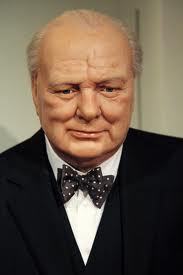 पुस्तक कहती है कि ”चर्चिल युध्द जीत गए थे लेकिन साम्राज्य गवां रहे थे!” वह आगे कहते हैं: एक उद्वेलित भारत पर शासन करने हेतु ब्रिटेन के पास न तो मानवशक्ति थी और न ही धन। चर्चिल को पूरी तरह पीछे हटने में ”ब्रिटेन के संचार तथा मध्य पूर्व और दक्षिण पूर्व एशिया के बीच अड्डों हेतु गंभीर परिणाम” दिखते थे।
पुस्तक कहती है कि ”चर्चिल युध्द जीत गए थे लेकिन साम्राज्य गवां रहे थे!” वह आगे कहते हैं: एक उद्वेलित भारत पर शासन करने हेतु ब्रिटेन के पास न तो मानवशक्ति थी और न ही धन। चर्चिल को पूरी तरह पीछे हटने में ”ब्रिटेन के संचार तथा मध्य पूर्व और दक्षिण पूर्व एशिया के बीच अड्डों हेतु गंभीर परिणाम” दिखते थे।
इसलिए उसकी योजना इस उप-महाद्वीप में ब्रिटिश एकाधिकार में तीन स्वतंत्र हिस्सों के चलते भारत पर किसी न किसी रुप में ब्रिटिश प्रभुत्व कायम रखने की थी।
चर्चिल की साम्राज्य सम्बन्धी रणनीति का यह मूल था। युध्द के पश्चात चुनावों में चर्चिल की हार और कलिमेंट एटली के नेतृत्व में लेबर पार्टी की सरकार पदारूढ़ होने के बाद भी भारत के प्रति ब्रिटेन के दृष्टिकोण को यह सोच प्रभावित करती रही।
20 फरवरी, 1947 को प्रधानमंत्री एटली ने ब्रिटिश संसद में जो वक्तव्य दिया उसकी दो महत्वपूर्ण विशेषताएं थीं:
(1) ब्रिटिश सरकार जून 1948 तक ब्रिटिश भारत को पूर्ण सेल्फ-गवर्नेमेंट प्रदान करेगी।
(2) रियासती राज्यों का भविष्य अंतिम स्थानांतरण की तिथि के बाद तय किया जाएगा।
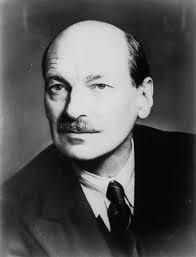 एटली द्वारा घोषित इस नीति वक्तव्य के पश्चात् 3 जून प्लान की घोषणा हुई, जिसे माऊण्टबेंटन प्लान के नाम से भी जाना जाता है। यह 3 जून 1947 को घोषित किया गया और जिसमें निम्नलिखित विशेषताएं समाहित थीं:
एटली द्वारा घोषित इस नीति वक्तव्य के पश्चात् 3 जून प्लान की घोषणा हुई, जिसे माऊण्टबेंटन प्लान के नाम से भी जाना जाता है। यह 3 जून 1947 को घोषित किया गया और जिसमें निम्नलिखित विशेषताएं समाहित थीं:
(1) ब्रिटिश सरकार ने विभाजन का सिध्दान्त स्वीकार कर लिया।
(2) परवर्ती सरकारों को स्वतंत्र-उपनिवेश का दर्जा दिया जाएगा।
(3) उन्हें ब्रिटिश राष्ट्रमण्डल से पृथक होने का अन्तर्निहित अधिकार होगा।
3 जून प्लान के आधार पर ही ब्रिटेन की संसद ने भारतीय स्वतंत्रता अधिनियम, 1947 पारित किया।
भारतीय स्वतंत्रता अधिनियम के विस्तृत प्रावधानों में कहीं भी 500 से अधिक रियासती राज्यों के बारे में कुछ उल्लेख नहीं था, जिसके बारे में चर्चिल ने तीसरा हिस्सा, प्रिंसस्तान का वर्णन किया था। भारत के विदेश सचिव के.पी.एस. मेनन ने अपनी आत्मकथा ‘मेनी वर्ल्डस रिविजिटेड’ में लिखा है:
”जब अंग्रेजों ने भारत छोड़ा तब विभाजित भारत की एकता भी खतरे में थी। कुछ 560 रियासती राज्य अपने हाल पर छोड़ दिए गए थे। यह उन पर निर्भर था कि वे भारत में मिल जाएं, या पाकिस्तान में या फिर स्वतंत्र ही बने रहें…..यह लगभग दिखता था कि मानों भारत बिखर जाएगा। परन्तु सरदार वल्लभभाई पटेल द्वारा राजे-रजवाड़ों से सख्ती से निपटने के चलते यह खतरा टल गया।”
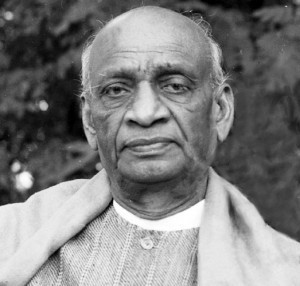 विभाजन के सिध्दान्त को स्वीकार करने वाले भारतीय स्वतंत्रता अधिनियम के पारित होने के फलस्वरूप होने वाले परिणामों की काट के रुप में सरदार पटेल ने प्रारम्भिक रूप से कांग्रेस पार्टी से एक प्रस्ताव पारित कराया जिसमें कहा गया कि ”पंजाब का विभाजन दो हिस्सों में किया जाए ताकि मुस्लिम बहुल वाला भाग गैर-मुस्लिम बहुल भाग से अलग हो सके।”
विभाजन के सिध्दान्त को स्वीकार करने वाले भारतीय स्वतंत्रता अधिनियम के पारित होने के फलस्वरूप होने वाले परिणामों की काट के रुप में सरदार पटेल ने प्रारम्भिक रूप से कांग्रेस पार्टी से एक प्रस्ताव पारित कराया जिसमें कहा गया कि ”पंजाब का विभाजन दो हिस्सों में किया जाए ताकि मुस्लिम बहुल वाला भाग गैर-मुस्लिम बहुल भाग से अलग हो सके।”
गांधीजी इस कदम से हतप्रभ रह गए और महसूस किया कि ‘अचानक उनके पैरों के नीचे से जमीन खिसक गई’। बलराज कृष्ण लिखते हैं: ”पटेल का कदम भारत के विभाजन के लिए नहीं था अपितु यह लीग द्वारा पाकिस्तान की मांग के परिणामों को ध्यान में रखकर पंजाबी मुस्लिमों (जो पूरे पंजाब को पाकिस्तान का हिस्सा बनाना चाहते थे) को पूर्व चेतावनी थी। बलराज कृष्ण कहते हैं: यहां तक कि नेहरू ने भी गांधी को साफ-साफ बता दिया कि ”यह प्रस्ताव जिन्ना द्वारा विभाजन की मांग का एकमात्र उत्तर है।” महात्मा गांधी & दि लास्ट फेज बाई प्यारेलाल
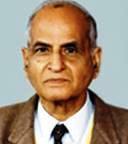 इस पुस्तक के लेखक बलराज कृष्ण जिनकी पुस्तक पर मैंने अपने पिछले दो ब्लॉग लिखे हैं, एक वरिष्ठ पत्रकार थे जिन्होंने 1944 में लाहौर में सिविल एण्ड मिलट्री गजेट से अपने केरियर की शुरूआत की। विभाजन के पश्चात् वह नई दिल्ली में विदेश मंत्रालय के प्रचार विभाग से सम्बन्ध्द थे। बाद में वह हिन्दुस्तान टाइम्स से जुडे। वह टाइम्स ऑफ इण्डिया] इकनामिक्स टाइम्स] दि हिन्दू और दि इलस्ट्रेटिड वीकली ऑफ इण्डिया जैसे अनेक प्रमुख दैनिकों और पत्रिकाओं में लिखते रहे।
इस पुस्तक के लेखक बलराज कृष्ण जिनकी पुस्तक पर मैंने अपने पिछले दो ब्लॉग लिखे हैं, एक वरिष्ठ पत्रकार थे जिन्होंने 1944 में लाहौर में सिविल एण्ड मिलट्री गजेट से अपने केरियर की शुरूआत की। विभाजन के पश्चात् वह नई दिल्ली में विदेश मंत्रालय के प्रचार विभाग से सम्बन्ध्द थे। बाद में वह हिन्दुस्तान टाइम्स से जुडे। वह टाइम्स ऑफ इण्डिया] इकनामिक्स टाइम्स] दि हिन्दू और दि इलस्ट्रेटिड वीकली ऑफ इण्डिया जैसे अनेक प्रमुख दैनिकों और पत्रिकाओं में लिखते रहे।
पुस्तक के शुरूआती पृष्ठ पर ही उन्होंने दो वायसराय -वावेल और माऊण्टबेंटन तथा एक उद्योगपति जे.आर.डी. टाटा द्वारा सरदार पटेल के बारे में की गई टिप्पणियां दी हैं।
वायसराय लॉर्ड बावेल द्वारा अंडर सेक्रेटरी ऑफ स्टेट आर्थर हेंडरसन को लिखा गया
”वल्लभभाई पटेल, भारत के बिस्मार्क हैं, गुजरात से आए लौह पुरूष……”
वायसराय लार्ड माऊण्टबेंटन द्वारा सरदार पटेल को सम्बोधित
”वर्षों से आप भारत के ‘लौह पुरूष’ हैं….. मुझे नहीं लगता कि देश में कोई भी एक ऐसा व्यक्ति होगा जो आप द्वारा निर्णय लिए जाने के बाद आपके सामने खड़ा रह सके।”
जे.आर.डी. टाटा द्वारा गांधी-नेहरू-पटेल त्रिमूर्ति पर की गई टिप्पणी: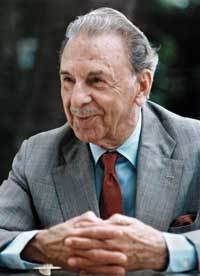 ”सामान्यतया मैं अक्सर गांधीजी से मिलकर आने के बाद प्रफुल्लित और उत्प्रेरित लेकिन सदैव थोड़ा संशयी महसूस करता हूं, और जवाहरलाल से बातें करने के बाद भावात्मक जोश से ओतप्रोत मगर अक्सर भ्रमित और न समझने वाला; जबकि वल्लभभाई से मुलाकात प्रसन्नता से भरपूर होती है और वापसी में हमारे देश के भविष्य के बारे में पुन:विश्वास भरा होता है। मैं अक्सर सोचता हूं कि यदि नियति ने जवाहरलाल के बजाय दोनों में उन्हें युवा बनाया होता तो भारत ने एक दूसरा पथ चुना होता और आज की तुलना में अच्छी आर्थिक स्थिति में होता।”
”सामान्यतया मैं अक्सर गांधीजी से मिलकर आने के बाद प्रफुल्लित और उत्प्रेरित लेकिन सदैव थोड़ा संशयी महसूस करता हूं, और जवाहरलाल से बातें करने के बाद भावात्मक जोश से ओतप्रोत मगर अक्सर भ्रमित और न समझने वाला; जबकि वल्लभभाई से मुलाकात प्रसन्नता से भरपूर होती है और वापसी में हमारे देश के भविष्य के बारे में पुन:विश्वास भरा होता है। मैं अक्सर सोचता हूं कि यदि नियति ने जवाहरलाल के बजाय दोनों में उन्हें युवा बनाया होता तो भारत ने एक दूसरा पथ चुना होता और आज की तुलना में अच्छी आर्थिक स्थिति में होता।”
हालांकि इस पुस्तक के लेखक द्वारा इस पुस्तक का शीर्षक रखते समय उनके मन में वायसराय वावेल द्वारा बोले गए शब्द प्रभावी रहे होंगे परन्तु यहां यह जानना भी उपयुक्त होगा कि पुस्तक में लेखक ने इस पक्ष पर भी जोर दिया है कि ”पटेल द्वारा महाद्वीप आकार और विभिन्न वर्गों के लोगों वाले देश में 500 से ज्यादा देसी रियासतों को एक करने तथा उन्हें ठोस रूप प्रदान करने जैसा ऐतिहासिक काम किया है, वह जर्मनी में बिस्मार्क की भूमिका से ज्यादा महत्वपूर्ण है”।
उन्होंने आगे कहा कि, भारत में उनका योगदान यदि तुलनात्मक रूप से देखा जाए तो वैसा ही है जैसा लार्ड वेल्लसले द्वारा ब्रिटेन के भारतीय साम्राज्य की नींव रखे जाना।
वेल्लसले की नीति आक्रामक साम्राज्यवादी थी जिसने कभी गर्व से भरे राजे-रजवाड़ों को मात्र कठपुतलियां और चाटुकार बना दिया था। पटेल ने यह नहीं किया। उनका एकीकरण एक रक्तहीन क्रांति थी जिसमें राजे-रजवाड़े उनके बराबर के सहयोगी थे।”
इसमें कोई आश्चर्य नहीं कि जब 1956 में सोवियत नेता खु्रश्चेव भारत यात्रा पर आए तो सरदार पटेल के कमाल से गद्गद् थे और उन्होंने कहा: ”आप भारतीय भी अद्भुत हो! धरती पर आपने राजाओं को समाप्त किए बगैर रियासतों के राज को समाप्त कैसे कर दिखाया?”
वास्तव में सरदार पटेल द्वारा राज्यों के एकीकरण के लक्ष्य को हासिल करने में सर्वाधिक उल्लेखनीय यह रहा कि इससे उन लोगों जिनके निहित स्वार्थ इसके एकीकरण में नहीं थे, भी पटेल को निस्संकोच बधाई देने से अपने को नहीं रोक पाए, स्वयं लार्ड माऊण्टबेंटन हैदराबाद में सेना भेजे जाने को लेकर चिंतित थे। उन्होंने निजाम को विलिनीकरण संधि जो सभी रियासतों से हो रही थी, के बजाय किसी तरह के ‘सहयोग’ जैसी संधि पर राजी करने की काफी कोशिश की।
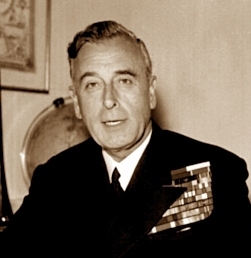 अंतत: जब पटेल को सफलता मिली, तो माऊण्टबेंटन ने टिप्पणी की कि राज्यों के संदर्भ में शानदार नीति से ज्यादा कोई और चीज वर्तमान सरकार की प्रतिष्ठा में चार चांद नहीं लगाती।”
अंतत: जब पटेल को सफलता मिली, तो माऊण्टबेंटन ने टिप्पणी की कि राज्यों के संदर्भ में शानदार नीति से ज्यादा कोई और चीज वर्तमान सरकार की प्रतिष्ठा में चार चांद नहीं लगाती।”
न केवल लार्ड माऊण्टबेंटन अपितु उस समय के भारतीय सेना के प्रमुख, जनरल बुशर जब निजाम के विरूध्द ऑपरेशन पोलो शुरू किया गया, भी इस कार्रवाई के खिलाफ थे। ऑपरेशन की सफलता के पश्चात् जब पटेल ने औपचारिक रूप से उन्हें बधाई दी तो उन्होंने बेवाकी से स्वीकार किया: ”हैदराबाद ऑपरेशन की सफलता हेतु मैं कोई श्रेय नहीं लेना चाहता, प्रारम्भ से अंत तक, सभी परिस्थितियों में, मैं यह कहने को तैयार नहीं था: ‘जाओ, जब तक सोची गई प्रत्येक संभावित घटना न घटे और उसकी रक्षा करो। मेरे विचार से वास्तव में सरदार एक बहुत महान व्यक्ति थे….. निस्संदेह, वह सही थे जब उन्होंने तय किया कि हैदराबाद सरकार, भारत सरकार की शर्तें स्वीकार करे या रज़ाकरों के खात्मे के उद्देश्य से राज्य में घुसना पड़ेगा।”
टेलपीस (पश्च्यलेख)
इस उल्लेखनीय पुस्तक में अंतिम अध्याय का शीर्षक है ‘दि मैन हू डेयर्ड चर्चिल: बट वन हिज़ एडमॉयरेशन।
इस अध्याय में चर्चिल को अदम्य वर्णित किया गया है। ”उसका प्रखर जिद्दी और साहसी रूप तत्काल आदेश पालना चाहता था।”
जून, 1948 में जब ”रॉयल टाइटल्स में से भारत के साम्राज्य टाइटल के लोप होने पर विलाप” हो रहा था तब उसने भारत और भारतीयों के प्रति विष उगलते हुए इन शब्दों में कहा: ”सत्ता धूर्तों, दुष्टों और बदमाशों के हाथों में जाएगी…. ये सूखी घास जैसे लोग हैं जिनका कुछ वर्षों के बाद अता-पता भी नहीं चलेगा।”
देहरादून में रोग शैय्या पर पड़े पटेल ने चर्चिल को करारा जबाव दिया। सरदार ने द्वितीय विश्व युध्द के घोषित विजेता को ”एक संकोचहीन साम्राज्यवादी जो साम्राज्यवाद के अंतिम दौर पर खड़ा है” निरूपित किया। पटेल ने और कहा वह (चर्चिल) ”नीचे से उठी हस्ती है जिसके लिए कारण, कल्पना या बुध्दिमता से ज्यादा जिद और मूर्खता अधिक महत्व रखती है।”
बलराज कृष्ण की इस पुस्तक का अंतिम पैराग्राफ निम्न है:
”चर्चिल ने पटेल के जवाबी हमले को अच्छी भावना से लिया-जैसाकि दो महापुरूषों में होता है- और अपने पूर्व विदेश सचिव एंथोनी इडेन जो भारत की यात्रा पर थे, के माध्यम से संदेश भिजवाया कि उन्होंने ‘इस जवाब से सम्पूर्णतया आनन्द हुआ है’ और उनके मन में उनके प्रति कुछ नहीं सिवाय प्रशंसा के कि जिस ढंग से नया राष्ट्र विशेषकर भारतीय राज्यों से जुड़े अपने आगे कार्य और जिम्मेदारियों को सही ढंग से जमा पाया। ”चर्चिल ने विशेष रूप से कहा कि सरदार को अपने आप को भारत की सीमाओं तक सीमित नहीं रखना चाहिए अपितु विश्व उन्हें देखने और उनसे अधिक सुनने का अधिकार रखता है।”
लालकृष्ण आडवाणी
नई दिल्ली
13 नवम्बर, 2013

November 12, 2013
CHURCHILLIAN STRATEGY FOR INDIA, POST-INDEPENDENCE
In the year 1945, following a campaign unleashed by the Muslim League for the partition of India, and the creation of Pakistan, the then Prime Minister of Great Britain, Winston Churchill, said that he favoured India’s partition into Pakistan, Hindustan and Princestan.
Balraj Krishna whose book about Sardar Patel I have referred to in my last blog, has a special chapter titled “A Churchillian Plan” which he opens with this quotation from the Viceroy’s Journal when Wavell was the Viceroy.
 The book says that Churchill “had won the war but he was losing the empire.” He adds: Britain had neither manpower nor money to rule over a restive India. Churchill saw in a complete withdrawal “serious implications for Britain’s communications and bases between the Middle East and South-East Asia”.
The book says that Churchill “had won the war but he was losing the empire.” He adds: Britain had neither manpower nor money to rule over a restive India. Churchill saw in a complete withdrawal “serious implications for Britain’s communications and bases between the Middle East and South-East Asia”.
His plan, therefore, was to ensure continuation of British hold over India through a division of the sub-continent into three independent constituents under British hegemony in one form or other.
This was the essence of Churchill’s imperial strategy. Even after Churchill’s defeat in the elections that followed the war, and assumption of office by a Labour government headed by Clement Attlee, this continued to influence U.K.’s approach to India.
On February 20th, 1947, Prime Minister Attlee made a statement in the British Parliament whose two essential features were:
1. The British Government would grant full self-government to British India by June 1948 at the latest.
2. The future of Princely States would be decided after the date of final transfer is decided.
 This Policy Statement made by Attlee was followed by the declaration of a 3rd June Plan, also known as Mountbatten Plan. This was announced on June 3, 1947 and included the following features :
This Policy Statement made by Attlee was followed by the declaration of a 3rd June Plan, also known as Mountbatten Plan. This was announced on June 3, 1947 and included the following features :
1. The British Government had accepted the principle of partition
2. Successor governments would be given Dominion Status.
3. There would be for them an implicit right to secede from the British Commonwealth.
It was on the basis of this June 3 Plan that the U.K. Parliament passed its Indian Independence Act, 1947.
The Indian Independence Act with all its details did not say anything about the over 560 Princely States, which Churchill had talked about as the third constituent, Princestan. India’s Foreign Secretary, K.P.S. Menon, wrote in his autobiography Many Worlds Revisited:
When the British left India, the unity even of divided India was in danger. Some 560 Princely States had been left in the air. It was open to them to adhere to India, to accede to Pakistan, or to remain independent…It almost looked as if India was going to be Balkanised. But this danger was averted by the firm handling of the Princes by a man of iron, Sardar Vallabhbhai Patel.
 Sardar Patel’s initial move to counter the implications of the passing of the Indian Independence Act which accepted the principle of partition was to have the Congress Party pass a resolution asking for “a division of Punjab into two provinces, so that the predominantly Muslim part may be separated from the predominantly non-Muslim part”.
Sardar Patel’s initial move to counter the implications of the passing of the Indian Independence Act which accepted the principle of partition was to have the Congress Party pass a resolution asking for “a division of Punjab into two provinces, so that the predominantly Muslim part may be separated from the predominantly non-Muslim part”.
Gandhiji was taken aback by this move and felt ‘as if an abyss had suddenly opened under his feet.’ Balraj Krishna writes: “Patel’s was not a call for India’s partition, but a forewarning to Punjabi Muslims (who were expecting entire Punjab to be part of Pakistan) of the consequences of League’s demand for Pakistan.” Balraj Krishna says: Even Nehru bluntly told Gandhi that the resolution was “the only answer to partition as demanded by Jinnah.” Mahatma Gandhi – The Last Phase by Pyarelal.
 Balraj Krishna, the author of the book on which I have based my last two blogs had been a senior journalist who began his career with the Civil and Military Gazette, Lahore, in 1944. After partition he was in New Delhi with the Publicity Division of the External Affairs Ministry. Later still he was with the Hindustan Times. He kept writing for many leading dailies and journals like the Times of India, Economic Times, The Hindu and Illustrated Weekly of India.
Balraj Krishna, the author of the book on which I have based my last two blogs had been a senior journalist who began his career with the Civil and Military Gazette, Lahore, in 1944. After partition he was in New Delhi with the Publicity Division of the External Affairs Ministry. Later still he was with the Hindustan Times. He kept writing for many leading dailies and journals like the Times of India, Economic Times, The Hindu and Illustrated Weekly of India.
On the very opening page of the book he has given three quotations about Sardar Patel from two Viceroys, Wavell and Mountbatten, and one top industrialist, J.R.D. Tata. These are as follows :
Viceroy Lord Wavell to Under Secretary of State Arthur Henderson:
“Vallabhbhai Patel, India’s Bismarck, the man of iron from Gujarat…”
Viceroy Lord Mountbatter to Sardar Patel:
“You have for years been the ‘strong man’ of India… I do not believe there is one man in the country who would stand up to you when you make up your mind.”
J.R.D. Tata on the Gandhi-Nehru-Patel Troika :
 “While I usually came back from meeting Gandhiji elated and inspired but always a bit sceptical, and from talks with Jawaharlal fired with emotional zeal but often confused and unconvinced, meetings with Vallabhbhai were a joy from which I returned with renewed confidence in the future of our country. I have often thought that if fate had decreed that he, instead of Jawaharlal, would be younger of the two, India would have followed a very different path and would be in better economic shape than it is today.”
“While I usually came back from meeting Gandhiji elated and inspired but always a bit sceptical, and from talks with Jawaharlal fired with emotional zeal but often confused and unconvinced, meetings with Vallabhbhai were a joy from which I returned with renewed confidence in the future of our country. I have often thought that if fate had decreed that he, instead of Jawaharlal, would be younger of the two, India would have followed a very different path and would be in better economic shape than it is today.”
Even though the author of this book may have thought of the title of this book because of Viceroy Wavell’s quote, it is very appropriate that he has in the body of his book emphasized that “Patel’s unification and consolidation of over 500 princely states, in a country of continental size and diverse people was epoch-making of greater importance than Bismarck’s role in Germany.”
In India, he adds, his creation can be comparable, though in contrast, with Lord Wellesley’s that laid the foundations of Britain’s Indian Empire.
“Wellesley’s policy was aggressive imperialism, that reduced the once proud princes to mere puppets and sycophants. Patel didn’t do that. His integration was a bloodless revolution, in the achievement of which the princes were his equal partners.”
No wonder that when in 1956 Soviet leader Khruschev visited India, he felt overwhelmed by Sardar Patel’s feat and observed: “You Indians are an amazing people! How on earth did you manage to liquidate the Princely rule without liquidating the Princes ?
What is really remarkable about the integration of States that Sardar Patel achieved is that even those who for reasons of their own had a vested interest in seeing that total integration did not take place could not but unreservedly compliment Patel on what he accomplished. Lord Mountbatten himself was anxious that the army should not be sent to Hyderabad. He struggled hard to make the Nizam agree to some treaty of ‘association’, in stead of the Instrument of Accession which Sardar wanted all States to sign.
 When ultimately, Patel had his way, Mountbatten remarked: “Nothing has so added to the prestige of the present government than the brilliant policy you have followed with the states”.
When ultimately, Patel had his way, Mountbatten remarked: “Nothing has so added to the prestige of the present government than the brilliant policy you have followed with the states”.
Not only Lord Mountbatten, but even Gen. Bucher who was still the Chief of the Indian Army when Operation Polo was undertaken against the Nizam was opposed to the action. When after the success of the operation Patel formally complimented him, he candidly admitted: “I take no credit to myself for the success of the Hyderabad operation. In all the circumstances from beginning to end, I was not prepared to say ‘Go’ until every possible development had been thought out and guarded against. The Sardar is, in my opinion, a very great man indeed… Undoubtedly, he was right when he decided that either the Government of Hyderabad must accept the Indian Government’s conditions, or else the State would have to be entered in order to eliminate the Razakars.”
TAILPIECE
The last chapter in this remarkable book is captioned The Man Who Dared Churchill: But Won His Admiration.
This chapter describes Churchill as indomitable, “He towered over all around him. His fierce bulldog looks commanded immediate obedience.”
In June 1948, while “bemoaning the disappearance of the title of Emperor of India from the Royal titles”, he poured venom on India and Indians in these words: “Power will go into the hands of rascals, rogues and free booters… These are men of straw of whom no trace will be found after a few years”.
From his sick-bed in Dehradun, Patel gave Churchill a blistering reply. The Sardar described the acclaimed victor of World War II as “an unashamed imperialist at a time when imperialism is on its last legs.” Patel added that he (Churchill) was “the proverbial last ditcher for whom obstinacy and stupid consistency count more than reason, imagination or wisdom.”
Balraj Krishna’s last paragraph of this book reads as under :
“Churchill took Patel’s counter-attack in good spirit – as between two great men – by conveying a message to him, through Anthony Eden, earlier his foreign secretary, who was visiting India, that he had “thoroughly enjoyed the retort” and that he had “nothing but admiration for the way the new Dominion had settled down to the tasks and responsibilities, particularly those involving relations with the Indian States”. Churchill had specially said that the Sardar should “not confine himself within the limits of India, but the world was entitled to see and hear more of him”.
L.K. Advani
New Delhi
13 Nov, 2013

November 11, 2013
भारत का बिस्मार्क : एक उत्कृष्ट पुस्तक
ऑर्गनाइज़र साप्ताहिक ने भारतीय सिनेमा के सौ वर्ष पूरे होने पर एक विशेषांक प्रकाशित किया है। इस विशेषांक में मेरा साक्षात्कार प्रमुखता से प्रकाशित हुआ है। साप्ताहिक के सम्पादक प्रफुल्ल केतकर ने अपने सवांददाता प्रमोद कुमार के साथ यह साक्षात्कार एक पखवाड़े पहले लिया था। मेरे देखने में आया कि टेलीग्राफ और अमृत बाजार पत्रिका ने इस साक्षात्कार पर आधारित समाचार प्रकाशित किए हैं।
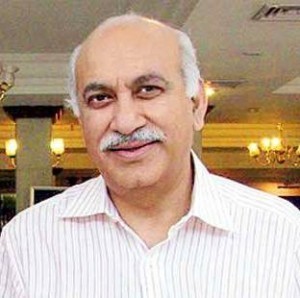 दो वर्ष पूर्व, जब मेरे ब्लॉगों की पुस्तक प्रकाशित हो रही थी तब मैंने भारत के सर्वाधिक उत्कृष्ट पत्रकार एम.जे. अकबर से प्रस्तावना लिखने का अनुरोध किया था। और उन्होंने इस अनुरोध के फलस्वरुप एक सुंदर आलेख लिखा। चार पृष्ठीय इस आलेख का अंतिम पैराग्राफ कहता है:
दो वर्ष पूर्व, जब मेरे ब्लॉगों की पुस्तक प्रकाशित हो रही थी तब मैंने भारत के सर्वाधिक उत्कृष्ट पत्रकार एम.जे. अकबर से प्रस्तावना लिखने का अनुरोध किया था। और उन्होंने इस अनुरोध के फलस्वरुप एक सुंदर आलेख लिखा। चार पृष्ठीय इस आलेख का अंतिम पैराग्राफ कहता है:
”यह संग्रह लालकृष्ण आडवाणी के कैरियर के बारे में प्रत्येक प्रश्न का स्पष्टीकरण नहीं कर पाएगा परन्तु निश्चित रुप से एक उत्तर अवश्य देगा। केन्द्र सरकार में वह दो मंत्रालयों का कार्यभार संभाल चुके हैं, एक बार मोरारजी देसाई के नेतृत्व में सूचना एवं प्रसारण मंत्रालय का और दो बार अटल बिहारी वाजपेयी के नेतृत्व में गृह मंत्रालय का। उनका दिमाग गृह मंत्रालय में सन्निहित था लेकिन उनका दिल सूचना एवं प्रसारण से जुड़ा था।”
वास्तव में जब मैं सूचना एवं प्रसारण मंत्री था तब मैं पहली बार अकबर से मिला था और वह भी पाकितान में।
‘मेरा देश, मेरा जीवन‘-शीर्षक वाली अपनी संस्मरणात्मक पुस्तक में अपने जन्म स्थान कराची, जहां मैंने जीवन के पहले बीस वर्ष गुजारे, की पहली यात्रा के बारे में मैंने लिखा था:
”मैं पेरिस से वापस लौट रहा था, जहां में यूनेस्को के सम्मेलन में भाग लेने के लिए गया था। यह दो दिनों का छोटा दौरा था, क्योंकि संसद् सत्र आरंभ होने वाला था और मुझे जल्दी दिल्ली लौटना था। संयोग से क्रिकेट मुझे कराची ले गया। पहली बार दूरदर्शन भारत-पाक टेस्ट मैच का प्रसारण कर रहा था और मुझे सूचना एवं प्रसारण मंत्री के रूप में आमंत्रित किया गया था। स्वाभाविक रूप से मैं बहुत ज्यादा आनंदित था। मैं इस दौरे से केवल दो चीजें चाहता था-अपने घर और स्कूल जाने का अवसर। मेरे लिए यह सुखद आश्चर्य था कि फादर मोडेस्टीन-जोकि सेंट पैट्रिक्स हाई स्कूल के प्रधानाचार्य थे, जब मैं वहां पढ़ता था और वे काफी समय से पहले सेवानिवृत्त हो गए थे-मेरी अगवानी करने के लिए स्कूल के दरवाजे पर उपस्थित थे। संयोग से 1978 में कराची में, मैं पहली बार एम.जे. अकबर से मिला, जो एक प्रख्यात संपादक व लेखक बने और जिनसे आजतक मेरी मित्रता बनी हुई है। वे उन दिनों ‘संडे‘ पत्रिका के लिए काम करते थे। और मुझे याद है, उन्होंने क्रिकेट मैच की रिपोर्ट में मेरी ‘घर वापसी‘ को कॅवर किया था।”
***
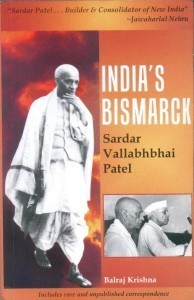 साफ दिखता है कि एम.जे. अकबर इन दिनों सरदार पटेल सम्बन्धी मेरे ब्लॉगों को काफी निकट से देख रहे हैं। उन्होंने ही मुझे बताया कि 1947 में भारतीय सेना के प्रमुख ब्रिटिश जनरल का नाम मैंने गलत लिखा है। ब्लॉग में मैंने इसे सुधार लिया। सरदार पटेल के साथ नेहरू के मतभेदों के संदर्भ में उन्होंने मुझे बलराज कृष्ण द्वारा लिखित ‘इण्डियाज़ बिस्मार्क, सरदार वल्लभभाई पटेल‘ की शानदार पुस्तक दी। पुस्तक सरदार पटेल के जन्मस्थान करसमद स्थित सरदार पटेल ट्रस्ट के सहयोग से प्रकाशित हुई है।
साफ दिखता है कि एम.जे. अकबर इन दिनों सरदार पटेल सम्बन्धी मेरे ब्लॉगों को काफी निकट से देख रहे हैं। उन्होंने ही मुझे बताया कि 1947 में भारतीय सेना के प्रमुख ब्रिटिश जनरल का नाम मैंने गलत लिखा है। ब्लॉग में मैंने इसे सुधार लिया। सरदार पटेल के साथ नेहरू के मतभेदों के संदर्भ में उन्होंने मुझे बलराज कृष्ण द्वारा लिखित ‘इण्डियाज़ बिस्मार्क, सरदार वल्लभभाई पटेल‘ की शानदार पुस्तक दी। पुस्तक सरदार पटेल के जन्मस्थान करसमद स्थित सरदार पटेल ट्रस्ट के सहयोग से प्रकाशित हुई है।
आज के ब्लॉग में, मैं इस पुस्तक से न केवल एक उध्दरण प्रस्तुत कर रहा हूं जिससे पुष्टि होती है कि सरदार पटेल उस समय कैबिनेट बैठक से उठकर चले गए थे जब उनके विरूध्द कठोर शब्दों का प्रयोग किया गया अपितु उसके बाद वी.वी. मेनन के भी बैठक से उठकर जाने का उल्लेख है।
‘इण्डियाज बिस्मार्क‘ पुस्तक के अनुसार:
”एक लोकतांत्रिक व्यवस्था में पुलिस कार्रवाई के लिए मंत्रिमण्डल की स्वीकृति जरूरी है। पटेल को नेहरू की अनिच्छा पर काबू पाने के लिए कठिन काम करना पड़ा। रक्षा कमेटी की एक बैठक में, जिसमें नेहरू चेयरमैन थे, में ”इतनी कटुता पैदा हुई कि सरदार पटेल उठकर चले गए”। वी.पी. मेनन ने बम्बई में रोटरी की एक मीटिंग में बताया कि ”उनकी (सरदार) खाली सीट देखकर पांच मिनट बाद मैं भी उठकर चला गया।” इससे लगता है कि नेहरू को झटका लगा और वह अपने आत्मसंतुष्ट मूड से बाहर आए तथा अपने विरोध को नरम किया। बाद में, एक बैठक जिसमें गर्वनर जनरल (राजागोपालाचारी), प्रधानमंत्री, गृहमंत्री (पटेल), और स्टेट्स मंत्रालय के सचिव (मेनन) उपस्थित थे, में यह तय हुआ कि हैदराबाद में सेना भेजी जाए।”
पटेल को अभी भी नेहरू के गुस्से का सामना करना था। भारतीय सेना के ब्रिटिश कमाण्डर-इन-चीफ जनरल रॉय बुशर ने नेहरू को मनाया कि ”अभियान के इस चरण पर भी इसे रोक देना चाहिए क्योंकि यह समूचे देश की आंतरिक सुरक्षा के लिए सैन्यरूप से जोखिमभरा तथा विनाशकारी है।” 12 सितम्बर की मध्यरात्रि को, नेहरू से बात करने के बाद बुशर ने पटेल को ‘उस घड़ी में नींद से उठाने के जोखिम भरा काम‘ किया और सलाह दी कि बम्बई और अहमदाबाद पर हवाई हमलों के डर के चलते यह अभियान रोक दिया जाए। पटेल ने बुशर को स्मरण कराया कि ”कैसे महायुध्द के समय लंदन को मुसीबतों का सामना करना पड़ा और नम्रता से उसे आश्वस्त किया कि यदि हमला होता भी है तो अहमदाबाद और बम्बई उसका सामना कर लेंगे।”
के.एम. मुंशी लिखते हैं: ”जनरल बुशर पूरा समय इसके पक्ष में नहीं थे। वह हैदराबाद की सेना की क्षमता को ज्यादा आंक रहे थे और अपनी सेना की क्षमता को कम और आंतरिक कानून तथा व्यवस्था की समस्या से निपटने में सरदार की क्षमता से परिचित नहीं थे। अन्य अंग्रेजों की तरह वह यह अहसास कर पाने में असफल थे कि भारत के अस्तित्व को खतरा बन रहे रजाकरों के खात्मे के लिए कोई भी कीमत ज्यादा नहीं हो सकती।” एच.वी.आर. आयंगर का मानना था कि ”इतिहास का निर्णय होगा कि सरदार सही थे और एक ऐसा निर्णय जिस पर नेहरू बाद मे ंपूरी तरह से तैयार हुए।”
हैदराबाद में भारतीय टुकड़ियां 13 सितम्बर को दाखिल हुईं। अभियान का नाम ‘ऑपरेशन पोलो‘ रखा गया। यह मात्र 108 घण्टे चला!
अपनी ऐतिहासिक पुस्तक ‘इन्टीग्रेशन ऑफ दि इण्डियन स्टेट्स‘ में वी.पी. मेनन ने ऑपरेशन पोलो का वर्णन विस्तार से करते हुए निष्कर्ष रूप में लिखा है:
”17 सितम्बर को लाइक अली (निजाम के प्रधानमंत्री) और उनके मंत्रिमण्डल ने अपने त्यागपत्र दे दिए थे। निजाम ने के.एम. मुंशी (जिन्हें पुलिस कार्रवाई शुरू होते ही घर में नजरबंद कर दिया गया था) को सूचित किया कि उन्होंने अपनी सेना को समर्पण करने के आदेश दिए हैं, और वह एक नई सरकार का गठन कर रहे हैं; भारतीय सेना सिकन्दराबाद और बोलारम जाने को स्वतंत्र हैं, और रज़ाकरों को प्रतिबंधित किया जाएगा। मुंशी ने यह भारत सरकार को सूचित किया। मेजर-जनरल चौधरी ने 18 सितम्बर को मिलिट्री गर्वनर का दायित्व संभाल लिया। लाइक अली मंत्रिमण्डल के सदस्यों को घरों में नजरबंद कर दिया गया। 19 सितम्बर को रिज़वी को गिरफ्तार कर लिया गया।
इस अभियान के दौरान भारत के विशाल भू-भाग में एक भी साम्प्रदायिक घटना नहीं घटी। हैदराबाद घटना के सहज और सफलतापूर्वक सम्पन्न होने पर सभी तरफ जश्न का माहौल था तथा देश के सभी भागों से भारत सरकार को बधाई के संदेशों का तांता लगा हुआ था।”
टेलपीस (पश्च्यलेख)
मुझे उस टीस का स्मरण हो आता है जब 1958 में हमारी पार्टी दिल्ली नगर निगम का चुनाव हार गई थी। अपने इस दु:ख को भुलाने के लिए अटलजी और मैं, अपने पार्टी कार्यालय के समीप पहाड़गंज स्थित एक सिनेमा हाल में फिल्म देखने गए। सिनेमा हाल इम्पीरियल था और फिल्म का नाम था ‘फिर सुबह होगी‘, जो दोस्तोएवेस्की के क्राइम एण्ड पनिशमेंट पर आधारित थी। फिल्म के शानदार गीत साहिर लुधियानवी ने लिखे थे और एक गीत के बोल इस प्रकार थे:
वो सुबह कभी तो आएगी
जब दु:ख के बादल पिघलेंगे , जब सुख का सागर छलकेगा
जब अंबर झूम के नाचेगा , जब धरती नगमें गाएगी
वो सुबह कभी तो आएगी।
चालीस वर्ष बाद 1998 में जब वाजपेयीजी हमारे प्रधानमंत्री बने, तब मैंने हमारी चुनावी हार को याद करते हुए कहा, ”वो सुबह आयी है, और हमही उसे लाए हैं।”
साभार: आर्गनाइज़र साप्ताहिक (दीपावली विशेषांक)
लालकृष्ण आडवाणी
नई दिल्ली
11 नवम्बर, 2013

November 10, 2013
INDIA’S BISMARCK: AN EXCELLENT BOOK
Organiser’s Deepavali issue published last week is a Special one on India’s Hundred Years of Cinema. The issue has prominently carried a longish interview with me. The journal’s Editor, Prafulla Ketkar, accompanied by his correspondent, Pramod Kumar, had recorded this interview a fortnight back. I notice that both the Telegraph as well as the Amrit Bazar Patrika have carried news items about my interview.
 Two years back when I published a compilation of blogposts I had written in the preceding two years I requested M.J. Akbar, one of India’s most outstanding journalists to write the Foreword. And he had responded to my request with an excellent write-up. The concluding paragraph of this four-page write-up read:
Two years back when I published a compilation of blogposts I had written in the preceding two years I requested M.J. Akbar, one of India’s most outstanding journalists to write the Foreword. And he had responded to my request with an excellent write-up. The concluding paragraph of this four-page write-up read:
“This collection will not clarify every query about the career of Lal Krishna Advani, but it will certainly answer one. He has held two portfolios in a Union Government, once as minister of information and broadcasting under Morarji Desai, and twice as home minister under Atal Bihari Vajpayee. His mind was embedded in the home ministry, but his heart belonged to information and broadcasting.”
Actually, it was as I & B Minister that I had met Akbar for the first time, and that too in Pakistan.
In my memoirs titled My Country , My Life, I have recalled my first trip back to my birthplace, Karachi, where I spent the first twenty years of my life, thus:
“I was on my way back from Paris, where I had gone to attend a UNESCO Conference. It was a short trip, just two days, because the Parliament Session was about to commence. Oddly, it was cricket that took me to Karachi. For the first time, Doordarshan was covering an Indo-Pak test match and I was invited in my capacity as India’s I & B minister. I was naturally overjoyed. I wanted only two things from the visit: an opportunity to visit my house, and my school. It was really a delightful surprise to find Father Modestine, who was the principal of St. Patrick’s High School when I used to study there, and who had long since retired, personally present at the schoolgate to receive me. Incidentally, it was in Karachi in 1978 that I first met M.J. Akbar, an erudite Editor and author, whose friendship I have cherished since then. He was working for Sunday magazine those days and I recall that he covered my ‘homecoming’ in his report on the cricket match.”
* * *
 M.J. Akbar has obviously been following these days my blogs relating to Sardar Patel. It is he who pointed out to me that the name of the British General heading the Indian Army in 1947 had been misspelt. I added a footnote to the blog and had it corrected. In the context of Nehru’s differences with Sardar Patel, he has commended to me an excellent book by Balraj Krishna, titled India’s Bismarck, Sardar Vallabhbhai Patel. The book is sponsored by Sardar Patel Trust, Karamsad. Karamsad is the birth place of Sardar Patel.
M.J. Akbar has obviously been following these days my blogs relating to Sardar Patel. It is he who pointed out to me that the name of the British General heading the Indian Army in 1947 had been misspelt. I added a footnote to the blog and had it corrected. In the context of Nehru’s differences with Sardar Patel, he has commended to me an excellent book by Balraj Krishna, titled India’s Bismarck, Sardar Vallabhbhai Patel. The book is sponsored by Sardar Patel Trust, Karamsad. Karamsad is the birth place of Sardar Patel.
In today’s blog I propose to quote just one excerpt from this book which not only confirmed that Sardar Patel walked out of the Cabinet Committee meeting when harsh words were used against him, but also indicates that shortly thereafter, V.P. Menon also left the meeting.
The book, India’s Bismarck, records:
“In a democratic set-up, cabinet sanction was essential for Police Action. Patel faced a formidable task in overcoming Nehru’s reluctance. At one of the meetings of the defence committee, of which Nehru was the chairman, there was so much bitterness that Sardar Patel walked out. “Seeing his seat vacant,” V.P. Menon told a Rotary meeting in Bombay, “I too walked out five minutes later.” This seemed to have shaken Nehru out of his complacent mood, and mellowed his opposition. Later, at a meeting attended by the governor general (Rajagopalachari), the prime minister, the home minister (Patel), and secretary to the states ministry (Menon), “it was decided to order troops into Hyderabad”.
Patel had yet to face the Hamlet in Nehru. The British commander-in-chief of the Indian Army, General Roy Bucher, persuaded Nehru that “even at that late stage the campaign should be called off as militarily risky, and hazardous on grounds of internal security in the whole country”. About midnight on 12 September, after he had spoken to Nehru, Bucher attempted “a rare feat” in pulling Patel “out of bed at that hour” and advised him to at least postpone action for fear of air attacks on Bombay and Ahmedabad. Patel reminded Bucher “how London had suffered during the Great War, and coolly assured him that Ahmedabad and Bombay both could stand up to an attack if it came”.
Gen. Bucher, K.M. Munshi writes, “was hesitant throughout. He overestimated the capacity of the Hyderabad army, underestimated that of his own troops, and knew not the ability of the Sardar …to deal with the problems of internal law and order. Like most Englishmen, he was unable to realise that no price was too high to be paid for eliminating the Razakar menace which threatened the very existence of India”. In H.V.R. Iengar’s view, “the verdict of history will be that the Sardar was right” and a verdict with which Nehru wholeheartedly agreed later.
Indian troops marched into Hyderabad on 13 September. The campaign was named “Operation Polo”. It lasted barely 108 hours!
In his monumental book, Integration of the Indian States, V.P. Menon, after describing Operation Polo at some length, concludes:
“On 17 September, Laik Ali (Prime Minister of the Nizam) and his cabinet tendered their resignations. The Nizam sent for K M Munshi (who had been under house arrest ever since the Police Action began) and informed him that he had given orders for his army to surrender; that he would be forming a new government; that Indian troops were free to go to Secunderabad and Bolarum, and that the Razakars would be banned. Munshi communicated this to the Government of India. Major-General Chaudhuri took charge as Military Governor on 18 September. The members of the Laik Ali ministry were placed under house arrest. Rizvi was arrested on 19 September.
There was not a single communal incident in the whole length and breadth of India throughout the time of the operation. There was universal jubilation at the swift and successful ending of the Hyderabad episode and messages of congratulation poured in to the Government of India from all parts of the country.”
TAILPIECE
I recall the pain of a day, way back around 1958, when our party lost in a Delhi corporation election. To help forget our sorrow, Atalji and I went and saw a movie at a theatre close to our party office, in Paharganj. That theatre was Imperial and the film we saw was the Raj Kapoor-Mala Sinha starre Phir Subha Hogi, based on Dostoevsky’s Crime and Punishment. The lyrics of the film were excellently written by Sahir Ludhianvi, and the words of one uplifting song went thus:
Wo subah kabhi to ayegi…
Jab dukh ke baadal pighlenge, jab sukh ka saagar chhalkega
Jab ambar jhoomke naachega, Jab dharti naghme gaayegi
Wo subah kabhi to ayegi
Thirty years later, in 1998, when Vajpayeeji became our Prime Minister, I recalled our poll defeat and affirmed, “Wo subah aayi hai, aur humhi usey laaye hain”.
By courtesy Organiser (Deepavali Special issue)
L.K. Advani
New Delhi
November 11, 2013

November 9, 2013
जम्मू एवं कश्मीर का भारत में विलय रोकना चाहता था ब्रिटेन
सन् 1947 बैच के भारतीय प्रशासनिक सेवा के अधिकारी स्वर्गीय श्री एमकेके नायर द्वारा मलयालम भाषा में लिखी गई पुस्तक पर आधारित मेरे पिछले ब्लॉग ने एक विवाद खड़ा कर दिया है। कुछ समाचारों में बताया गया है कि निजाम के विरुध्द सैनिक कार्रवाई के मुद्दे पर नेहरु और पटेल के बीच ‘झड़प‘ सम्बन्धी रिपोर्टें आधारहीन हैं। तथ्य यह है कि 1947 में कबाइलियों और पाकिस्तान द्वारा जम्मू एवं कश्मीर पर हमले के बाद वहां सेना भेजने के मुद्दे पर भी नेहरु को ऐसी ही आपत्ति थी।
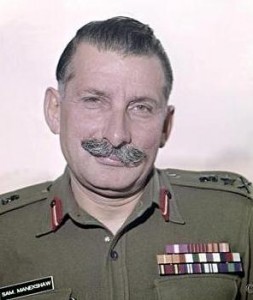
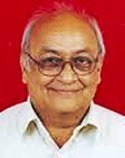 ‘नेट‘ खंगालते हुए मुझे प्रेम शंकर झा द्वारा भारतीय सेना के पहले फील्ड मार्शल सैम मानेकशॉ से लिया गया दिलचस्प साझात्कार ‘रिडिफ‘ पर पढ़ने को मिला। स्वतंत्रता प्राप्ति के शुरुआती वर्षों में मानेकशॉ कर्नल थे जिन्हें वी.पी. मेनन के साथ कश्मीर भेजने के लिए तब चुना गया, जब वी.पी. जम्मू एवं कश्मीर के भारत में विलय की प्रक्रिया पूरी करने में लगे थे। प्रेमशंकर झा द्वारा कर्नल मानेकशॉ के विचारों को निम्नलिखित रुप में प्रस्तुत किया गया है:
‘नेट‘ खंगालते हुए मुझे प्रेम शंकर झा द्वारा भारतीय सेना के पहले फील्ड मार्शल सैम मानेकशॉ से लिया गया दिलचस्प साझात्कार ‘रिडिफ‘ पर पढ़ने को मिला। स्वतंत्रता प्राप्ति के शुरुआती वर्षों में मानेकशॉ कर्नल थे जिन्हें वी.पी. मेनन के साथ कश्मीर भेजने के लिए तब चुना गया, जब वी.पी. जम्मू एवं कश्मीर के भारत में विलय की प्रक्रिया पूरी करने में लगे थे। प्रेमशंकर झा द्वारा कर्नल मानेकशॉ के विचारों को निम्नलिखित रुप में प्रस्तुत किया गया है:
”दोपहर में करीब 2.30 बजे, जनरल सर राय बुशर मेरे कक्ष में आए और बोले ‘ए, एस/सी विमान करीब 4 बजे उड़ान भरेगा। मैंने कहा ‘मैं ही क्यों, सर?’
क्योंकि हम सैन्य स्थिति को लेकर चिंतित हैं। वी.पी. मेनन वहां महाराजा और महाजन से विलिनीकरण दस्तावेज लेने जा रहे हैं।‘ मैं वी.पी. मेनन के साथ डाकोटा विमान में सवार हो गया। विंग कमाण्डर दिवान, जो उस समय स्क्वाड्रन लीडर दिवान थे। वह हमारे साथ थे। लेकिन उनके काम का का सैन्य स्थिति का जायजा लेने से कोई लेना-देना नहीं था। उन्हें एयर फोर्स ने इसलिए भेजा था चूंकि हम एयर फोर्स के विमान से जा रहे थे।‘
चूंकि मैं मिलट्री ऑपरेशन निदेशालय में था और पूरे भारत, पश्चिमी सीमांत पंजाब तथा अन्य स्थानों पर चल रहे ऑपरेशनस की जिम्मेदारी मेरे उपर थी, इसलिए मुझे पता था कि कश्मीर में हालात क्या हैं। मुझे पता था कि कबाईली घुसे हैं- शुरुआत में पाकिस्तानी समर्थन प्राप्त सिर्फ कबाईली।
हमारे लिए और कश्मीर के लिए यह शुक्र था कि वे लूटमार और बलात्कार जैसे कामों में लगे थे। बारामूला में उन्होंने कर्नल डी.ओ.टी. डाइक्स की हत्या कर दी। डाइक्स और मैं वरिष्ठता में एक समान थे। 1934-35 में हम दोनों ने अपना पहले वर्ष का एटैचमेंट लाहौर में रायल स्कॉट्स में किया था। टॉम सिख रेजीमेंट में चले गए थे। मैं फ्रंटियर फोर्स रेजीमेंट में। बाद में हमारा कोई सम्पर्क नहीं रहा। वह लेफ्टीनेंट कर्नल बने। मैं कर्नल बना।
बारामूला में जब टॉम और उनकी पत्नी छुट्टियां मना रहे थे तब कबाईलियों ने उनकी हत्या कर दी।
महाराजा की सेना में 50 प्रतिशत मुस्लिम और 50 प्रतिशत डोगरा थे।
मुस्लिमों (सैनिकों) ने विद्रोह कर पाकिस्तानी सेना के साथ हाथ मिला लिया। यह मौटे तोर पर सैन्य स्थिति थी। कबाईली श्रीनगर से 7 से 9 किलोमीटर की दूरी पर बताए जाते थे। मुझे सैन्य स्थिति की वास्तविक जानकारी लेने के लिए भेजा गया। सेना को पता था कि यदि हमें सैनिक भेजने हैं तो उन्हें विमान से भेजना पड़ेगा। इसलिए कुछ दिन पूर्व हमने विमानों का प्रबन्ध कर लिया था तथा सैनिकों को भेजने हेतु तैयार रहने का भी।
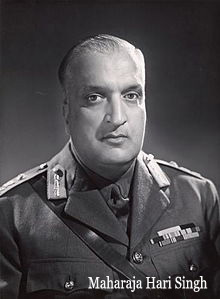
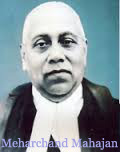 लेकिन हम उन्हें तब तक नहीं भेज सकते थे जब तक कश्मीर राज्य भारत में शामिल नहीं हो जाता। राजनीतिक दृष्टि से सरदार पटेल और वी.पी. मेनन महाजन और महाराजा से सम्पर्क में थे, योजना यह थी कि वी.पी. मेनन विलीनीकरण सम्बन्धी काम करेंगे और मैं सैन्य स्थिति का हवाला लाकर सरकार को बताऊंगा। सेना की टुकड़ियां पहले से ही हवाई अड्डे पर थीं, और उड़ान भरने को तैयार। एयरचीफ मार्शल इल्महस्ट वायु सेना प्रमुख थे और उन्होंने नागर विमानन तथा सैन्य सूत्रों से विमानों का प्रबन्ध किया हुआ था।
लेकिन हम उन्हें तब तक नहीं भेज सकते थे जब तक कश्मीर राज्य भारत में शामिल नहीं हो जाता। राजनीतिक दृष्टि से सरदार पटेल और वी.पी. मेनन महाजन और महाराजा से सम्पर्क में थे, योजना यह थी कि वी.पी. मेनन विलीनीकरण सम्बन्धी काम करेंगे और मैं सैन्य स्थिति का हवाला लाकर सरकार को बताऊंगा। सेना की टुकड़ियां पहले से ही हवाई अड्डे पर थीं, और उड़ान भरने को तैयार। एयरचीफ मार्शल इल्महस्ट वायु सेना प्रमुख थे और उन्होंने नागर विमानन तथा सैन्य सूत्रों से विमानों का प्रबन्ध किया हुआ था।
खैर, हमने उड़ान भरी। हम श्रीनगर पहुंचे। हम महल गए। मैंने अपनी जीवन में कभी इतनी अव्यवस्था नहीं देखी। महाराजा एक कक्ष से दूसरे कक्ष में दौड़ लगा रहे थे। मैंने जीवन में इतने ज्यादा जेवर-जवाहरात नहीं, देखे-मोतियों की माला, रुबी, एक कमरे में पडे थे; इधर, उधर और सभी जगह पैंकिग हो रही थी। वाहनों की पंक्ति बनी हुई थी। महाराजा एक कमरे से बाहर और दूसरे कमरे में जाते हुए कह रहे थे ‘ठीक है, यदि भारत सहायता नहीं करता, तो मैं अपनी सेना के साथ लड़ूंगा।‘
मैं अपने पर काबू नहीं रख पाया और कहा ‘सर, इससे उनका मनोबल बढ़ेगा।‘ वास्तव में, हमारे आस-पास के सभी लोगों से सैन्य स्थिति मुझे पता चल चुकी थी और पूछा जा रहा था कि क्या हो रहा है तथा मैंने पाया कि कबाईली खराब छोटे सी हवाई पट्टी से करीब सात या नौ किलोमीटर ही दूर थे।
इस बीच वी.पी. मेनन महाजन और महाराजा से विचार-विमर्श कर रहे थे। वास्तव में, महाराजा ने विलीनीकरण के दस्तावेजों पर हस्ताक्षर कर दिए और देर रात्रि को हम डाकोटा से वापस आ गए। विमान पट्टी पर रात्रि को उड़ान भरने की कोई सुविधा नहीं थी और जो लोग उड़ान भरने में हमारी सहायता कर रहे थे उनमें शेख अब्दुल्ला, कासिम साहब, सादिक साहब, बख्शी गुलाम मोहम्मद और दुर्गा प्रसाद धर देवदार की टार्च लेकर खड़े थे और इस तरह हम दिल्ली वापस लौट सके। मुझे एकदम सही समय तो याद नहीं फिर भी उस समय सुबह के 3 या 4 अवश्य बज रहे होंगे।
(दिल्ली लौटने पर) पहला काम मैंने यह किया कि मैं सर राय बुशर को मिला। उन्होंने कहा ‘ए, तुम पहले जाकर दाढ़ी बनाकर, नहाधो कर आओ। 9 बजे कैबिनेट की बैठक है। मैं तुम्हें साथ ले लूंगा।‘ अत: मैं घर गया, दाढ़ी बनाई, कपड़े इत्यादि बदले, और रॉय बुशर ने मुझे साथ में लिया तथा हम कैबिनेट मीटिंग में पहुंचे।
कैबिनेट मीटिंग की अध्यक्षता माऊण्टबेंटन कर रहे थे। उसमें जवाहरलाल नेहरु थे, सरदार पटेल थे और सरदार बलदेव सिंह भी। अन्य मंत्रीगण भी थे जिन्हें मैं नहीं जानता था और जानना भी नहीं चाहता था क्योंकि मुझे उनसे कुछ लेना-देना नहीं था।
सरदार बलदेव सिंह को मैं जानता था क्योंकि वह रक्षा मंत्री थे और मैं सरदार पटेल को जानता था क्योंकि पटेल वी.पी. मेनन पर दवाब बनाए रखते थे कि वह मुझे विभिन्न राज्यों में ले जाएं।
लगभग प्रत्येक सुबह सरदार-वी.पी., एच.एम पटेल और मुझे बुलाते थे। जबकि मणिबेन (पटेल की बेटी और एक तरह से सचिव) पारकर फाउंटेन पेन लेकर पांव पर पांव रखे नोट्स लेती थीं, पटेल कहते ‘वी.पी. मुझे बड़ोदा चाहिए। इसे अपने साथ ले जाओ।‘ मैं समझदार था। अत: मैं सरदार को अच्छे ढंग से जानने लगा था।
सुबह की बैठक में उन्होंने (विलीनीकरण सम्बन्धी कागजात) सौंपे। माऊंटबेंटन पलटे और कहा ”आइए मानेकजी (वह मुझे मानेक शा के बजाय मानेक जी पुकारते थे), सैन्य स्थिति कैसी है?” मैंने सैन्य स्थिति की जानकारी दी और उन्हें बताया कि यदि तुरंत हमने विमान से अपनी टुकड़ियां नहीं भेजी तो हम श्रीनगर को गवां बैंठगें। क्योंकि सड़क मार्ग से जाने में अनेक दिन लगेंगे और एक बार कबाईलियों ने हवाई अड्डे और श्रीनगर पर कब्जा कर लिया तो हम टुकड़ियां भी नहीं भेज सकेंगे। हवाई अड्डे पर सभी चीजें तैयार थीं।
सदैव की भांति नेहरु संयुक्त राष्ट्र , रुस, अफ्रीका, सर्वशक्तिमान परमात्मा सहित सभी के बारे में बात करने लगे जब तक कि सरदार पटेल ने अपना धैर्य नहीं खो दिया। उन्होंने कहा ‘जवाहरलाल क्या तुम कश्मीर चाहते हो या इसे गंवा देना चाहते हो।‘ उन्होंने (नेहरु) कहा ‘निस्संदेह, मुझे कश्मीर चाहिए। तब उन्होंने (पटेल) कहा ‘कृपया अपने आदेश दीजिए।‘ और इससे पहले कि वह कुछ कह पाते सरदार पटेल मेरी तरफ मुड़े और कहा ‘तुम्हें अपने लिए आदेश मिल गए हैं।‘
मैं वहां से बाहर निकला और हमने लगभग 11 या 12 बजे टुकड़िया को रवाना करना शुरु कर दिया। मुझे लगता है यह रंजीत राय के नेतृत्व में सिख रेजीमंट थी जो सबसे पहले विमान से रवाना की गई। जो हुआ, वह इतना ही मैं जानता हूं। उसके बाद सारी लड़ाई लड़ी गई। मैं ब्रिगेडियर बना और मिलट्री ऑपरेशन्स का निदेशक और यदि आपकों (जनवरी 1949) को हुए युध्द विराम के आदेशों पर हस्ताक्षर देखने को मिलेंगे तो आप पाएंगे कि भारत के कमाण्डर-इन-चीफ सर रॉय बुशर की तरफ से कर्नल मानेकशॉ के हस्ताक्षर हैं। यह दस्तावेज मिलिट्री ऑपरेशन्स निदेशालय में अवश्य ही मिल जाएगा।
***
5 नवम्बर के मेरे ब्लॉग प्रकाशित होने के बाद एक मित्र ने बताया कि मैंने जनरल बुशर का नाम गलत लिखा है। इसे मैंने अपने ब्लॉग में सही कर लिया।
लेकिन इसके थोड़ी देर पश्चात् मैंने जनरल सर रॉय बुशर सम्बन्धी वेबसाईट देखी और उनके नाम से लिखे गए लेख में पाया कि 1946-47 और 1947-48 के भारत-पाक युध्द के समय जनरल बुशर ही भारतीय सेना के कमांडर-इन-चीफ थे।
1947 का भारत-पाक युध्द एक ऐसा युध्द था जिसमें जम्मू एवं कश्मीर प्रदेश पर कबाईलियों और पाकिस्तानी सैनिकों ने हमला बोला; इन सबका नेतृत्व सैनिक अधिकारी कर रहे थे। जनरल बुशर की वेबसाइट कहती है:
1947-48 का भारत-पाक युध्द आधुनिक सैन्य इतिहास में अनोखा था क्योंकि यह एकमात्र ऐसा युध्द था जो दो आधुनिक सेनाओं (दो विभिन्न देशों की) में लड़ा गया और दोनों के कमाण्डर ब्रिटिश जनरल थे। भारतीय सेना के कमाण्डर-इन-चीफ जनरल सर रॉय बुशर थे तो पाकिस्तान ने जनरल डगल्स ग्रेसी। भारत और पाकिस्तान में तीनों सेनाओं की कमाण्ड ब्रिटिश अफसरों के हाथों में थी।
लेकिन 1948 में नेहरु इस निष्कर्ष पर पहुंचे कि यह तत्काल व्यवहार्य उपाय नहीं है। कमाण्डर-इन-चीफ जनरल बुशर ने उन्हें सलाह दी कि चूंकि ब्रिटेन भी पाकिस्तान को सहयोग कर रहा है, इसलिए सैन्य रुप से समूचे जम्मू एवं कश्मीर क्षेत्र पर नियंत्रण रखना सम्भव नहीं होगा। पाकिस्तान को आशंका थी कि महाराजा भारत के साथ मिलना चाहते हैं और इसलिए वह बलात राज्य पर कब्जा कर इसे निष्फल बनाना चाहता था।
12 सितम्बर को इस बारे में अंतिम निर्णय लेने हेतु कैबिनेट बैठक बुलाई गई। बैठक में उपस्थितों में प्रधानमंत्री नेहरु, गृहमंत्री पटेल, रक्षा मंत्री बलदेव सिंह, गोपालास्वामी आयंगर, जनरल बुशर, लेफ्टिनेंट जनरल (बाद में फील्ड मार्शल और भारतीय सेना के कमाण्डर-इन-चीफ) के.एम. करिअप्पा और एयर मार्शल सर थामस डब्ल्यू। अल्महॉयरिस्ट (आइएएफ के कमाण्डर-इन-चीफ) थे।
जैसे ही निर्णय हो रहा था कि जनरल बुशर उठे ओर कहा ”सज्जनों, आपने एक कठिन मामले में निर्णय किया है। मैं भी अपनी चेतावनी से अवगत कराना चाहता हूं। हम भी कश्मीर में उलझे हुए है। मैं नहीं कह सकता कि इसमें कितना समय लगेगा, और हमारे दोनों ऑपरेशन्स कब पूरे होंगे। यह करने योग्य नहीं है इसलिए आपके कमाण्डर-इन-चीफ होने के नाते मैं कहूंगा कि ऑपरेशन्स शुरु न किए जाएं।” उन्होंने कहा यदि उनकी सलाह नहीं मानी जाती है तो वह अपना त्यागपत्र दे देंगे।
एकदम चुप्पी छा गई और निराश तथा चिंतित नेहरु इधर-उधर झांकने लगे। पटेल ने उत्तर दिया , ”आप त्यागपत्र दे सकते हैं जनरल बुशर लेकिन पुलिस कार्रवाई कल शुरु होगी।” क्रोधित जनरल बुशर उठकर चले गए और संयोग से अगले कुछ दिनों में कश्मीर कार्रवाई में तेजी आ गई।
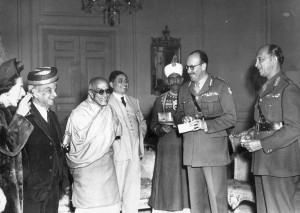
जनरल सर रॉय बुशर (पूर्ववर्ती कमाण्डर-इन-चीफ) और श्रीमती बुशर, श्री सी राजगोपालचारी और कमान्डर-इन-चीफ, जनरल के एम. करिअप्पा
जनवरी, 1949 में भारत के अपने पहले कमाण्डर-इन-चीफ जनरल करिअप्पा थे। इस युध्द की समाप्ति के अंतिम चरण में ब्रिटेन की एक बड़ी चिंता यह थी कि जनरल करिअप्पा जो कदम उठा रहे थे उसे जनरल सर रॉय बुशर नियंत्रित नहीं कर पा रहे थे। ब्रिटिश भारत-पाक युध्द नहीं चाहते थे। उन्हें पता था कि झड़पें हो सकती हैं और उन्होंने सभी ब्रिटिश अधिकारियों को गुप्त निर्देश भेजे थे कि युध्द की स्थिति में ‘वे तटस्थ रहें‘। इन अधिकारियों को बताया गया था कि वे जहां सलाहकार की हैसियत से हैं, वे वहां से अपने दायित्व से त्यागपत्र दे सकते हैं।
ब्रिटेन साफ तौर पर नहीं चाहता था कि पूरा जम्मू एवं कश्मीर भारत के साथ जाए। लंदन में यह व्यापक धारणा थी कि यदि भारत के नियंत्रण में पाकिस्तान से लगे क्षेत्र रहे तो पाकिस्तान जिंदा नहीं रह पाएगा।
भारत और पाकिस्तान तथा व्हाईटहाल के ब्रिटिश उच्चायोगों के बीच आदान-प्रदान किए गए अत्यन्त गोपनीय ‘केबल्स‘ सच्ची कहानी कहते हैं। कमाण्डर-इन-चीफ नई दिल्ली स्थित ब्रिटिश उच्चायोग से निर्देश प्राप्त कर रहे थे। नेहरु ने पाकिस्तान में कबाइलियों के अड्डों पर हमला करने का निर्णय लिया परन्तु माऊंटबेंटन इसके विरोध में थे।
लालकृष्ण आडवाणी
नई दिल्ली
7 नवम्बर, 2013

November 6, 2013
HOW BRITAIN SOUGHT TO THWART J&K’S ACCESSION TO INDIA
My last blog, based on a book in Malayalam, written by a 1947 IAS official, late Shri MKK Nair, has precipitated quite a controversy. There have been comments from the Congress Camp that Nair’s report about a clash between Nehru and Patel on the issue of armed action against the Nizam is all baseless. Fact is that even on sending the army into J&K following the attack on J&K by tribesmen and Pakistan in 1947, Nehru had similar reservations.

 Going through Rediff on The Net, I have come across a very interesting interview Sam Manekshaw, the first Field Marshal in the Indian Army had with Prem Shankar Jha. Manekshaw, in those early years of independence, was a colonel who was chosen to accompany V.P. Menon to Kashmir when V.P. was proceeding to that state to secure J & K’s Accession to India. Col. Manekshaw’s version as recorded by Prem Shankar Jha runs as follows :
Going through Rediff on The Net, I have come across a very interesting interview Sam Manekshaw, the first Field Marshal in the Indian Army had with Prem Shankar Jha. Manekshaw, in those early years of independence, was a colonel who was chosen to accompany V.P. Menon to Kashmir when V.P. was proceeding to that state to secure J & K’s Accession to India. Col. Manekshaw’s version as recorded by Prem Shankar Jha runs as follows :
At about 2.30 in the afternoon, General Sir Roy Bucher walked into my room and said, ‘Eh, you, go and pick up your toothbrush. You are going to Srinagar with V P Menon. The flight will take off at about 4 o’clock’. I said, ‘Why me, Sir?’
‘Because we are worried about the military situation. V P Menon is going there to get the accession from the Maharaja and Mahajan.’ I flew in with V P Menon in a Dakota. Wing Commander Dewan, who was then Squadron Leader Dewan, was also there. But his job did not have anything to do with assessing the military situation. He was sent by the Air Force because it was the Air Force which was flying us in.’
Since I was in the Directorate of Military Operations, and was responsible for current operations all over India, West Frontier, the Punjab, and elsewhere, I knew what the situation in Kashmir was. I knew that the tribesmen had come in - initially only the tribesmen - supported by the Pakistanis.
Fortunately for us, and for Kashmir, they were busy raiding, raping all along. In Baramulla they killed Colonel D O T Dykes. Dykes and I were of the same seniority. We did our first year’s attachment with the Royal Scots in Lahore, way back in 1934-5. Tom went to the Sikh regiment. I went to the Frontier Force regiment. We’d lost contact with each other. He’d become a lieutenant colonel. I’d become a full colonel.
Tom and his wife were holidaying in Baramulla when the tribesmen killed them.
The Maharaja’s forces were 50 per cent Muslim and 50 per cent Dogra.
The Muslim elements had revolted and joined the Pakistani forces. This was the broad military situation. The tribesmen were believed to be about 7 to 9 kilometers from Srinagar. I was sent in to get the precise military situation. The army knew that if we had to send soldiers, we would have to fly them in. Therefore, a few days before, we had made arrangements for aircraft and for soldiers to be ready.

 But we couldn’t fly them in until the state of Kashmir had acceded to India. From the political side, Sardar Patel and V P Menon had been dealing with Mahajan and the Maharaja, and the idea was that V.P Menon would get the Accession, I would bring back the military appreciation and report to the government. The troops were already at the airport, ready to be flown in. Air Chief Marshall Elmhurst was the air chief and he had made arrangements for the aircraft from civil and military sources.
But we couldn’t fly them in until the state of Kashmir had acceded to India. From the political side, Sardar Patel and V P Menon had been dealing with Mahajan and the Maharaja, and the idea was that V.P Menon would get the Accession, I would bring back the military appreciation and report to the government. The troops were already at the airport, ready to be flown in. Air Chief Marshall Elmhurst was the air chief and he had made arrangements for the aircraft from civil and military sources.
Anyway, we were flown in. We went to Srinagar. We went to the palace. I have never seen such disorganisation in my life. The Maharaja was running about from one room to the other. I have never seen so much jewellery in my life - pearl necklaces, ruby things, lying in one room; packing here, there, everywhere. There was a convoy of vehicles.
The Maharaja was coming out of one room, and going into another saying, ‘Alright, if India doesn’t help, I will go and join my troops and fight (it) out’.
I couldn’t restrain myself, and said, ‘That will raise their morale sir’. Eventually, I also got the military situation from everybody around us, asking what the hell was happening, and discovered that the tribesmen were about seven or nine kilometres from what was then that horrible little airfield.
V P Menon was in the meantime discussing with Mahajan and the Maharaja. Eventually the Maharaja signed the accession papers and we flew back in the Dakota late at night. There were no night facilities, and the people who were helping us to fly back, to light the airfield, were Sheikh Abdullah, Kasimsahib, Sadiqsahib, Bakshi Ghulam Mohammed, D P Dhar with pine torches, and we flew back to Delhi. I can’t remember the exact time. It must have been 3 o’clock or 4 o’clock in the morning.
(On arriving at Delhi) the first thing I did was to go and report to Sir Roy Bucher. He said, ‘Eh, you, go and shave and clean up. There is a cabinet meeting at 9 o’clock. I will pick you up and take you there.’ So I went home, shaved, dressed, etc. and Roy Bucher picked me up, and we went to the cabinet meeting.
The cabinet meeting was presided by Mountbatten. There was Jawaharlal Nehru, there was Sardar Patel, there was Sardar Baldev Singh. There were other ministers whom I did not know and did not want to know, because I had nothing to do with them. Sardar Baldev Singh I knew because he was the minister for defence, and I knew Sardar Patel, because Patel would insist that V P Menon take me with him to the various states.
Almost every morning the Sardar would sent for V P, H M Patel and myself. While Maniben (Patel’s daughter and de facto secretary) would sit cross-legged with a Parker fountain pen taking notes, Patel would say, ‘V P, I want Baroda. Take him with you.’ I was the bogeyman. So I got to know the Sardar very well.
At the morning meeting he handed over the (Accession) thing. Mountbatten turned around and said, ‘come on Manekji (He called me Manekji instead of Manekshaw), what is the military situation?’ I gave him the military situation, and told him that unless we flew in troops immediately, we would have lost Srinagar, because going by road would take days, and once the tribesmen got to the airport and Srinagar, we couldn’t fly troops in. Everything was ready at the airport.
As usual Nehru talked about the United Nations, Russia, Africa, God almighty, everybody, until Sardar Patel lost his temper. He said, ‘Jawaharlal, do you want Kashmir, or do you want to give it away’. He (Nehru) said,’ Of course, I want Kashmir. Then he (Patel) said ‘Please give your orders’. And before he could say anything Sardar Patel turned to me and said, ‘You have got your orders’.
I walked out, and we started flying in troops at about 11 o’clock or 12 o’clock. I think it was the Sikh regiment under Ranjit Rai that was the first lot to be flown in. And then we continued flying troops in. That is all I know about what happened. Then all the fighting took place. I became a brigadier, and became director of military operations and also if you will see the first signal to be signed ordering the cease-fire on 1 January (1949) had been signed by Colonel Manekshaw on behalf of C-in-C India, General Sir Roy Bucher. That must be lying in the Military Operations Directorate.
* * *
After my blogpost of November 5 was circulated a friend told me that I had misspelt the name of Gen. Bucher. I corrected it by adding a footnote to my blog.
But shortly thereafter, I looked up at a website on Gen. Sir Roy Bucher and discovered in the write-up under his name that in the years 1946-47 as well as during the Indo-Pak war of 1947-48 it was Gen. Bucher who was the Commander-in-Chief of the Indian Army.
The Indo-Pak war of 1947 was a war in which Jammu and Kashmir state had been invaded by tribesmen as well as Pakistani soldiers, all led by army officials. Gen. Bucher’s website says:
The Indo-Pak war of 1947-48 was unique in modern military history because it is the only war fought by two modern armies (belonging to two different countries), which were both commanded by British generals. The Commander-in-chief (C-in-C) of the Indian Army was General Sir Roy Bucher, and his Pakistani counterpart was General Douglas Gracey. All three services in India and Pakistan were commanded by British officers.
But by 1948, Nehru had come around to the conclusion that this was not an immediately feasible proposition. The C-in-C, General Bucher, advised him that militarily it was not possible to establish control over the entire territory of Jammu & Kashmir, with the British also supporting Pakistan. Pakistan suspected the Maharaja wanted to accede to India and tried to pre-empt his decision by forcibly seizing the state.
A cabinet meeting was organised for September 12th to take a final decision. Among those who attended were Prime Minister Nehru, Home Minister Patel, Defence Minister Baldev Singh, Gopalaswamy Iyengar, General Bucher, Lt. Gen. (later Field Marshal and C-in-C, IA) K M Cariappa and Air Marshal Sir Thomas W. Elmhirst (C-in-C, IAF).
As the decision was being finalised, Gen. Bucher stood up and said, “Gentlemen, you have taken a decision in a difficult matter. I must give you my warning. We are also committed in Kashmir. We cannot say how long it will take so we will end up having two operations on our hands. This is not advisable, so as your C-in-C I ask you not to start the operations.” He further offered his resignation if his advice was not heeded.
There was a silence while a distressed and worried Nehru looked around. Patel replied, “You may resign General Bucher, but the police action will start tomorrow.” An angry General Bucher stormed out, and coincidentally the next few days saw a rise in the Kashmir operations.

General Sir Roy Bucher and Lady Bucher with Shri C. Rajagopalachari
and Commander-in-Chief, General K.M. Cariappa at Rashtrapati Bhavan
India’s own first C-in-C in January 1949 was General Cariappa. One of the things that greatly concerned the British at the closing stage of this war was that General Cariappa was taking initiatives that General Sir Roy Bucher could not control. The British did not want an Indo-Pak war. They were conscious that hostilities would break out and had issued secret orders to all British officers ‘to stand down’ in the event of a war. These officers were told they could resign their commission or function in an advisory capacity.
The British clearly did not want the whole of Jammu & Kashmir to go to India. There was a widespread feeling in London that if India was in control of areas contiguous to Pakistan, the latter would not survive.
The top-secret cables exchanged between the British missions in India and Pakistan, and Whitehall, tell the true story. The C-in-C was receiving instructions from the British High Commission in New Delhi. Nehru had decided to strike at the bases of the raiders in Pakistan but Mountbatten opposed this.
L.K. ADVANI
New Delhi
November 7, 2013

November 5, 2013
जब वी.पी. मेनन ने एक ब्रिटिश जनरल के छक्के छुड़ाए
पिछले महीने, मैंने ‘डा. मुंशी का पण्डित नेहरू को ऐतिहासिक पत्र‘ शीर्षक से एक ब्लॉग लिखा था।
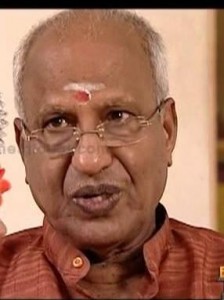 इस ब्लॉग के पश्च्यलेख (टेलपीस) में मैंने स्मरण कराया था कि पिछले दिनों पॉयनियर दैनिक में एक समाचार पढ़ा था कि पण्डितजी हैदराबाद के मुद्दे को भी संयुक्त राष्ट्र सुरक्षा परिषद को सौंपना चाहते थे तथा हैदराबाद में सरदार पटेल द्वारा सेना भेजने के निर्णय का भी उन्होंने कड़ा विरोध किया था।
इस ब्लॉग के पश्च्यलेख (टेलपीस) में मैंने स्मरण कराया था कि पिछले दिनों पॉयनियर दैनिक में एक समाचार पढ़ा था कि पण्डितजी हैदराबाद के मुद्दे को भी संयुक्त राष्ट्र सुरक्षा परिषद को सौंपना चाहते थे तथा हैदराबाद में सरदार पटेल द्वारा सेना भेजने के निर्णय का भी उन्होंने कड़ा विरोध किया था।
पॉयनियर का समाचार एक आईएएस अधिकारी एमकेके नायर द्वारा लिखित पुस्तक पर आधारित था। डा. मुंशी के पत्र से सम्बन्धित ब्लॉग में मैंने कहा था कि इस पुस्तक को मैं व्याकुलता से तलाश रहा हूं लेकिन न तो यह मुझे पुस्तक की दुकानों पर मिली और न ही पुस्तकालय में। पॉयनियर के सम्पादक श्री चंदन मित्रा भी इसे खोज पाने में सफल नहीं हुए। इस ब्लॉग के जरिए मैंने अपने सभी पाठकों से अपील की थी कि जो भी मुझे यह पुस्तक उपलब्ध करा पाएगा मैं उसका ‘अत्यन्त आभारी‘ रहूंगा। मैंने केरल भाजपा के एक वरिष्ठ नेता और मेरे पूर्व संसदीय सहयोगी श्री ओ. राजगोपाल से भी इस पुस्तक को खोजने का अनुरोध किया था।
मुझे खुशी है कि मेरे यह प्रयास रंग लाए हैं। ऐसा लगता है कि यह पुस्तक मलयालम में लिखी गई है। पॉयनियर में प्रकाशित समाचार इसी पर आधारित था। पुस्तक के अंग्रेजी में अनुवाद होने की प्रक्रिया चल रही है। अनुवादक श्री गोपाकुमार ने मुझे एक पत्र भेजा है और साथ में अनुदित पाण्डुलिपी की प्रति जोकि प्रकाशक द्वारा यथोचित सम्पादन के पश्चात् प्रकाशित की जाएगी।
इस पुस्तक के सम्बन्धित प्रसंग को पढ़ने के बाद मैंने पाया कि जिस मंत्रिमण्डलीय बैठक में नेहरू और पटेल के बीच तीखी झढ़प हुई वह 1948 में तथाकथित ‘पुलिस एक्शन‘ से कुछ समय पूर्व ही हुई थी। यह वह समय था जब लार्ड माऊण्टबेंटन लंदन जा चुके थे और राजाजी गर्वनर जनरल बने थे।
एमकेके नायर की पुस्तक में एक प्रसंग ऐसा है जो भारत के प्रति पूर्वाग्रह रखने वाले ब्रिटिश सैन्य अधिकारियों पर गंभीर टिप्पणियां करता है। इस प्रसंग को बगैर किसी टीका-टिप्पणी के, मैं नायर द्वारा ”द स्टोरी ऑफ एन इरा टोल्ड विदआऊट इल विल” पुस्तक में लिखे गए को ज्यों का त्यों प्रस्तुत कर रहा हूं: नायर लिखते हैं:
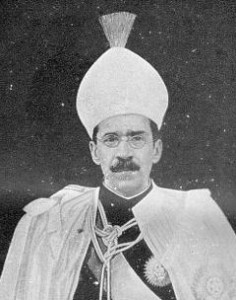
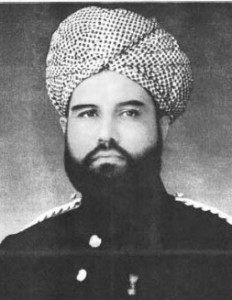 ”30 अप्रैल, 1948 को भारतीय सेना हैदराबाद से पूरी तरह हट चुकी थी। उसके बाद, रिजवी और रजाकरों ने पूरे राज्य में पाश्विक व्यवहार करना शुरू कर दिया। माऊण्टबेंटन जा चुके थे और राजाजी गर्वनर जनरल थे। नेहरू, राजाजी और पटेल, सभी हैदरराबाद में व्याप्त खतरनाक परिस्थियों से परिचित थे। पटेल का मानना था कि निजाम की स्वच्छंदता को समाप्त करने के लिए सेना को भेजा जाना चाहिए। लगभग उसी समय निजाम ने अपना एक दूत पाकिस्तान भेजा और लंदन स्थित अपनी सरकार के खाते से पाकिस्तान को एक बड़ी राशि स्थानांतरित कर दी। मंत्रिमण्डल की बैठक में पटेल ने इन घटनाओं का ब्यौरा देते हुए मांग की कि हैदराबाद में आतंकी राज के खात्मे के लिए सेना को भेजा जाए। नेहरू जो सामान्यतया शांत, मृदुभाषी और अंतरराष्ट्रीय नजाकत के साथ बोलते थे, अपना आपा खो बैठे और चीखे ”तुम पूरी तरह से साम्प्रदायिक हो। मैं कभी तुम्हारी सिफारिश नहीं मानूंगा।”
”30 अप्रैल, 1948 को भारतीय सेना हैदराबाद से पूरी तरह हट चुकी थी। उसके बाद, रिजवी और रजाकरों ने पूरे राज्य में पाश्विक व्यवहार करना शुरू कर दिया। माऊण्टबेंटन जा चुके थे और राजाजी गर्वनर जनरल थे। नेहरू, राजाजी और पटेल, सभी हैदरराबाद में व्याप्त खतरनाक परिस्थियों से परिचित थे। पटेल का मानना था कि निजाम की स्वच्छंदता को समाप्त करने के लिए सेना को भेजा जाना चाहिए। लगभग उसी समय निजाम ने अपना एक दूत पाकिस्तान भेजा और लंदन स्थित अपनी सरकार के खाते से पाकिस्तान को एक बड़ी राशि स्थानांतरित कर दी। मंत्रिमण्डल की बैठक में पटेल ने इन घटनाओं का ब्यौरा देते हुए मांग की कि हैदराबाद में आतंकी राज के खात्मे के लिए सेना को भेजा जाए। नेहरू जो सामान्यतया शांत, मृदुभाषी और अंतरराष्ट्रीय नजाकत के साथ बोलते थे, अपना आपा खो बैठे और चीखे ”तुम पूरी तरह से साम्प्रदायिक हो। मैं कभी तुम्हारी सिफारिश नहीं मानूंगा।”
पटेल शांत बैठे रहे परन्तु अपने पेपरों के साथ कक्ष से बाहर चले गए।
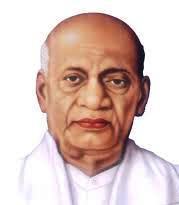
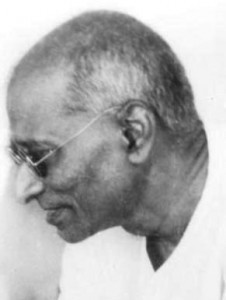 हैदराबाद में स्थिति दिन-ब-दिन बदतर होती जा रही थी। राजाजी मूल मुद्दे का समाधान करना चाहते थे और साथ ही नेहरू तथा पटेल के बीच मेल-मिलाप करना भी। उन्होंने वी.पी. मेनन को बातचीत के लिए बुलाया। वी.पी. ने राजाजी को जानकारी दी कि सेना कार्रवाई के लिए तैयार है और किसी भी समय उसे हमला करने को कहा जा सकता है। राजाजी ने नेहरू और पटेल को अगले दिन राष्ट्रपति भवन (तत्कालीन गर्वनर-जनरल हाऊस) आने का न्यौता दिया। वी.पी. मेनन को भी मौजूद रहने को कहा गया। जब वी.पी. मेनन राष्ट्रपति भवन की बैठक हेतु जा रहे थे तो एक आईसीएस अधिकारी बुच (जोकि स्टेट होम मिनिस्ट्री से थे और जिसने ट्रावनकोर एवं कोच्चि के एकीकरण हेतु वार्ताएं की थीं) ने उन्हें रोककर एक पत्र थमाया। वह ब्रिटिश उच्चायुक्त की ओर से था और जिसमें दो दिन पूर्व ही रजाकरों द्वारा एक सत्तर वर्षीय नन से बलात्कार को लेकर विरोध जताया गया था। बैठक में पहुंचने पर वी.पी. मेनन ने राजाजी को वह पत्र सौंप दिया।
हैदराबाद में स्थिति दिन-ब-दिन बदतर होती जा रही थी। राजाजी मूल मुद्दे का समाधान करना चाहते थे और साथ ही नेहरू तथा पटेल के बीच मेल-मिलाप करना भी। उन्होंने वी.पी. मेनन को बातचीत के लिए बुलाया। वी.पी. ने राजाजी को जानकारी दी कि सेना कार्रवाई के लिए तैयार है और किसी भी समय उसे हमला करने को कहा जा सकता है। राजाजी ने नेहरू और पटेल को अगले दिन राष्ट्रपति भवन (तत्कालीन गर्वनर-जनरल हाऊस) आने का न्यौता दिया। वी.पी. मेनन को भी मौजूद रहने को कहा गया। जब वी.पी. मेनन राष्ट्रपति भवन की बैठक हेतु जा रहे थे तो एक आईसीएस अधिकारी बुच (जोकि स्टेट होम मिनिस्ट्री से थे और जिसने ट्रावनकोर एवं कोच्चि के एकीकरण हेतु वार्ताएं की थीं) ने उन्हें रोककर एक पत्र थमाया। वह ब्रिटिश उच्चायुक्त की ओर से था और जिसमें दो दिन पूर्व ही रजाकरों द्वारा एक सत्तर वर्षीय नन से बलात्कार को लेकर विरोध जताया गया था। बैठक में पहुंचने पर वी.पी. मेनन ने राजाजी को वह पत्र सौंप दिया।
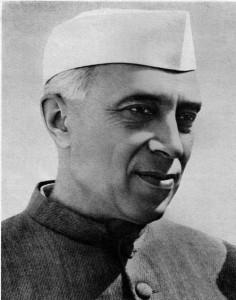 नेहरू और पटेल के पहुंचने के बाद राष्ट्रपति भवन में बैठक शुरू हुई। राजाजी ने अपनी चिर-परिचित शैली में हैदराबाद की स्थिति का वर्णन किया। उनका मानना था कि भारत की प्रतिष्ठा बचाने के लिए निर्णय और अधिक नहीं टाला जाना चाहिए। नेहरू अंतरराष्ट्रीय स्तर पर हो सकने वाले परिणामों को लेकर चिंतित थे। तब राजाजी ने तुरूप का पत्ता -ब्रिटिश उच्चायुक्त द्वारा दिया गया पत्र- चला। नेहरू ने इसे पढ़ा। उनका चेहरा लाल हो गया अैर उनके गंजे सिर पर नसें तनने लगीं। गुस्से में उनके शब्द नहीं निकल रहे थे। वह कुर्सी से उठे, मेज पर गुस्से से मुक्का मारा और चिल्लाए, एक मिनट भी हमको नहीं गंवाना चाहिए। हम उन्हें सबक सिखाएंगे।
नेहरू और पटेल के पहुंचने के बाद राष्ट्रपति भवन में बैठक शुरू हुई। राजाजी ने अपनी चिर-परिचित शैली में हैदराबाद की स्थिति का वर्णन किया। उनका मानना था कि भारत की प्रतिष्ठा बचाने के लिए निर्णय और अधिक नहीं टाला जाना चाहिए। नेहरू अंतरराष्ट्रीय स्तर पर हो सकने वाले परिणामों को लेकर चिंतित थे। तब राजाजी ने तुरूप का पत्ता -ब्रिटिश उच्चायुक्त द्वारा दिया गया पत्र- चला। नेहरू ने इसे पढ़ा। उनका चेहरा लाल हो गया अैर उनके गंजे सिर पर नसें तनने लगीं। गुस्से में उनके शब्द नहीं निकल रहे थे। वह कुर्सी से उठे, मेज पर गुस्से से मुक्का मारा और चिल्लाए, एक मिनट भी हमको नहीं गंवाना चाहिए। हम उन्हें सबक सिखाएंगे।
राजाजी ने तुरंत वी.पी. मेनन को कहा, ”वी.पी. कमाण्डर-इन-चीफ को योजना के अनुसार आगे बढ़ने को कहो।”
वी.पी. ने जनरल बुशर को आदेश बताया। नेहरू अपने सिर को हाथों से पकड़े बैठे रहे। वह चाय पीते रहे और चुप थे। राजाजी मुस्कराए और कहा: ”यदि यह कैंसर है, तो इसे हटाना ही होगा, चाहे कितना भी दर्द हो।”
वी.पी. मेनन बैठक से अपने कार्यालय आए और जल्दी-जल्दी योजना बनाने लगे कि क्या-क्या करना है। पाकिस्तान के कमाण्डर-इन-चीफ भी एक अंग्रेज था जो भारतीय नेताओं के साथ शत्रुता की भावना रखता था। जब बुशर ने जनरल लॉकहार्ट से कमाण्डर-इन-चीफ का दायित्व संभाला तब उन्होंने ईश्वर के नाम पर भारत के प्रति वफादार रहने की शपथ ली थी। जैसे ही बुशर ने वी.पी. मेनन से सुना तो उन्होंने राजेन्द्र सिंह को निर्देशित किया, जिसने जनरल चौधरी को अगली सुबह तीन बजे कार्रवाई करने का निर्देश दिया। उस दिन शाम सात बजे बुशर ने कराची से सम्पर्क कर वहां अपने समकक्ष से बातचीत की। बातचीत फ्रैंच भाषा में थी।
अगले दिन सुबह दस बजे वी.पी. मेनन बुशर के कक्ष में पहुंचे। यह मानकर कि वह हैदराबाद एक्शन का ब्यौरा लेने आए होंगे, बुशर ने उन्हें ताजा जानकारी से अवगत कराया। तब वी.पी. ने कहा मुझे यह सब पता है। मैं किसी और चीज के लिए आया हूं। क्या आपने कल शाम पाकिस्तान के कमाण्डर-इन-चीफ से बातचीत की। यह सुनते ही बुशर का चेहरा पीला पड़ गया।
‘वी.पी., क्या आप यह कह रहे हैं कि हम दोस्त आपस में एक-दूसरे से बातचीत नहीं कर सकते?’
‘क्या यह दोस्ताना वार्ता थी?’
‘क्या तुम्हें इसमें संदेह है?’
‘तुमने फ्रेंच में क्यों बात की?’
‘क्या तुमने टेलीफोन ‘टेप‘ करना शुरू कर दिया है?’
‘यदि परिस्थितियों की मांग हो तो क्यों नहीं? क्या वास्तव में वह दोस्ताना बातचीत थी?’
‘बिल्कुल!‘
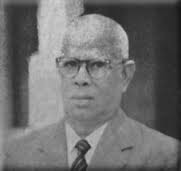 वी.पी. मेनन ने एक दस्तावेज निकाला और बुशर को पकड़ाया। यह एक दिन पूर्व शाम को हुई बातचीत का अंग्रेजी अनुवाद था
, जिसमें लिखा था:
वी.पी. मेनन ने एक दस्तावेज निकाला और बुशर को पकड़ाया। यह एक दिन पूर्व शाम को हुई बातचीत का अंग्रेजी अनुवाद था
, जिसमें लिखा था:
बुशर: हैदराबाद पर हमला आज रात को होगा। ज्यादा दिन नहीं चलेगा। यदि तुम कुछ कर सकते हो तो अभी से करो।
पाकिस्तान कमाण्डर-इन-चीफ: धन्यवाद। लियाकत अली को सूचित करूंगा। जिन्ना तो मृत्यु शैय्या पर हैं।
बुशर: अपनी डयूटी करने के बाद मैं तुम्हारे हाथों में रहूंगा। ‘
बुशर जो टेलीफोन-टेपिंग से अपमानित होने का दिखावा कर रहा था, अब पसीने से तरबतर था। उसने दु:ख के साथ वी.पी. मेनन को देखा और कहा, ‘मैं क्या करूं वी.पी.? मुझसे गलती हो गई। मुझे खेद है।‘
वी.पी. मेनन ने उससे पूछा, ‘क्या तुमने अपने हाथ में बाइबिल लेकर भारत के प्रति वफादार रहने की ईश्वर के सम्मुख शपथ नहीं ली थी?’
बुशर: ‘वी.पी., कृपया मुझे बचाओ। मैंने जो किया है उसका प्रायश्चित करने को मैं तैयार हूं। मुझे अपमानित मत करो। हमारी पुरानी दोस्ती का हवाला कि मेरी सहायता करो।‘
वी.पी. मेनन ने बुशर से एक पत्र लिया जिसमें लिखा गया था, ‘मैं निजी और स्वास्थ्य कारणों से इस्तीफा दे रहा हूं। कृपया इसे तुरंत स्वीकार किया जाए‘ और वह चला गया। तब भारतीय सेना की कमान जनरल करिअप्पा को सौंपी गई।
लालकृष्ण आडवाणी
नई दिल्ली
5 नवम्बर, 2013

L.K. Advani's Blog
- L.K. Advani's profile
- 10 followers


